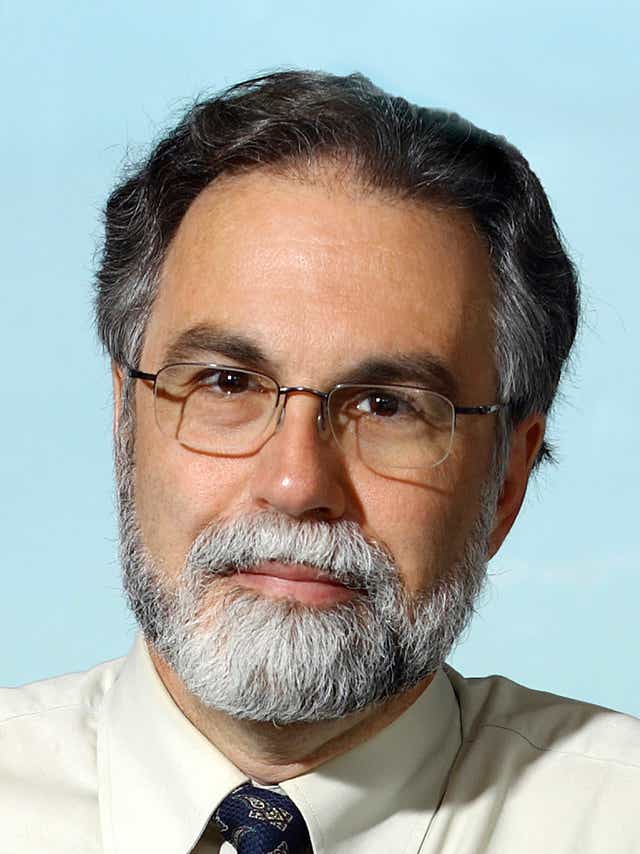 Gregg L. Semenza, M.D., Ph.D.
Gregg L. Semenza, M.D., Ph.D.
Nobel laureate
C. Michael Armstrong Professor of Genetic Medicine, Pediatrics, Medicine, Oncology, Radiation Oncology, and Biological Chemistry;
Director, Vascular Program, Institute for Cell Engineering;
Johns Hopkins University School of Medicine
Baltimore, USA
One of today's preeminent researchers on the molecular mechanisms of oxygen regulation, Dr. Semenza has led the field in uncovering how cells adapt to changing oxygen levels. He is best known for his ground-breaking discovery of the HIF-1 (hypoxia-inducible factor 1) protein, which controls genes in response to changes in oxygen availability. The finding has far-reaching implications in understanding and treating low-oxygen health conditions such as coronary artery disease and tumor growth.
Dr. Semenza was recognized for this groundbreaking research in 2019, when awarded the Nobel Prize in Physiology or Medicine by the Royal Swedish Academy of Sciences. He shares the award with William G. Kaelin, Jr., M.D. of the Dana-Farber Cancer Institute and Peter J. Ratcliffe of Oxford University.
He received his A.B. from Harvard University. He earned his M.D. and Ph.D. from the University of Pennsylvania, completed his residency in pediatrics at Duke University Medical Center and performed postdoctoral research in medical genetics at Johns Hopkins. Dr. Semenza joined the Johns Hopkins faculty in 1990.
Dr. Semenza's research interests include the molecular mechanisms of oxygen homeostasis; gene and stem cell therapy for ischemic cardiovascular disease; the role of HIF-1 in cancer; and protection of the heart against ischemia-reperfusion injury. He has authored more than 250 research articles and several book chapters, and has been cited in research more than 30,000 times.
He is a founding fellow of the American College of Medical Genetics and was elected to the Association of American Physicians and the National Academy of Sciences in 2008. He serves on the editorial board of several journals, including Molecular and Cellular Biology and Cancer Research, and is editor-in-chief of the Journal of Molecular Medicine.
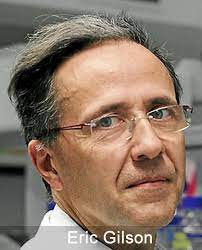 Eric Gilson, PhD
Eric Gilson, PhD
Eric GILSON, PhD.
Member of Academia Europaea
Director of the Institute for Research on Cancer and Aging of Nice, France (IRCAN)
Professor of Cell biology at the Medical School of Nice, University Côte d’Azur, Nice, France
Scientific director of the cross-cutting Inserm program on aging (AGEMED) and of the international program InterAging.
Before the 90’s, telomeres were mostly considered as DNA repeats of a certain length depending on the presence of telomerase. Overall, the work of Eric Gilson contributed to broaden this view by revealing an unusual organization of telomeric chromatin and unexpected links between this chromatin, telomere length, regulation and chromosome end stability and senescence. Therefore, his work had and still has a strong influence not only for telomere people but also for researchers working on the higher-order structure of chromatin, replication, DNA damage response, cancer, and aging. Nowadays, the main objective of Eric Gilson research is to provide an integrated description of the telomere signaling pathways involved in aging and malignant transformation.
In addition to his director position at IRCAN, Eric Gilson is also the Coordinator of the International Laboratory in Cancer, Aging and Hematology, Jiaotong University School of Medicine of Shanghai, Inserm, CNRS, University Côte d’Azur, Co-head with Pr J. YE and Y. LU of a team on telomeres at the Medical center on Aging of Shanghai Ruijin Hospital.
 Brian Kennedy
Brian Kennedy
Director, Centre for Healthy Longevity
Professor
Departments of Biochemistry and Physiology
National University of Singapore
Singapore
Dr. Brian Kennedy is a Distinguished Professor in the Departments of Biochemistry and Physiology at the Yong Loo Lin School of Medicine, National University Singapore. He serves as co-Director of the Centre for Healthy Longevity at the National University Health System and Director for the Healthy Longevity Translational Research Programme and the Asian Centre for Reproductive Longevity and Equality. Collectively, NUS ageing research seeks to demonstrate that longevity interventions can be successfully employed in humans to extend healthspan, the disease-free and highly functional period of life.
From 2010 to 2016, Dr. Kennedy was the President and CEO of the Buck Institute for Research on Aging and he maintained a professorship there through 2020. Dr. Kennedy has an adjunct appointment in the Department of Biochemistry at the University of Washington and, where he was a faculty member from 2001 to 2010. Dr. Kennedy is also actively involved with a number of Biotechnology companies and also served as a Co-Editor-In-Chief at Aging Cell from 2011-2021. Finally, Dr. Kennedy has a track record of interaction in China, where he was a Visiting Professor at the Aging Research Institute at Guangdong Medical College from 2009 to 2014. His Ph.D. was performed in the laboratory of Leonard Guarente at M.I.T., where he published the first paper linking Sirtuins to aging.
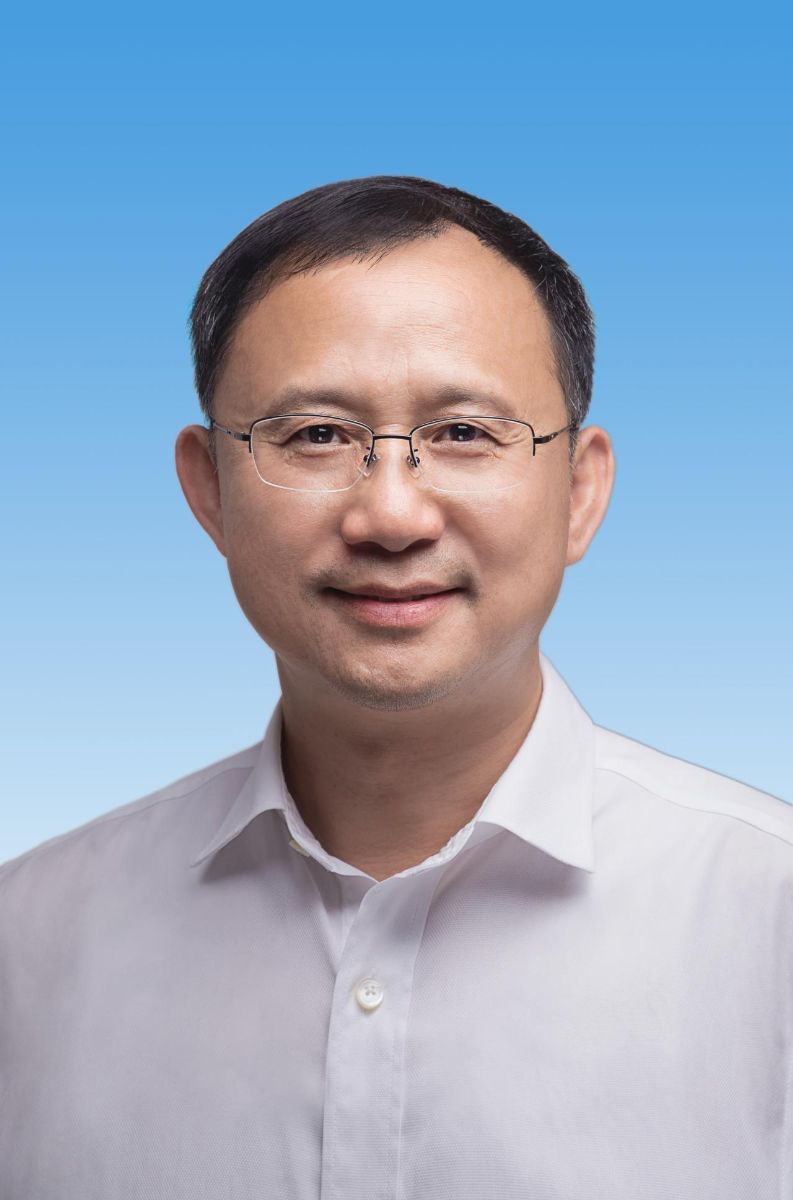 Qingming Luo (骆清铭)
Qingming Luo (骆清铭)
Academician of Chinese Academy of Sciences
President of Hainan University
Chairman of Hainan Association for Science and Technology
Hainan
China
Luo Qingming is an academician of the Chinese Academy of Sciences, a member of the Chinese Academy of Medical Sciences, president of Hainan University, chairman of the Hainan Association for Science and Technology, and director of the Education Steering Committee for Biomedical Engineering in Colleges and Universities of the Ministry of Education. He has been elected to the International Academy of Medical and Biological Engineering (IAMBE), the American Academy of Medical and Biological Engineering (AIMBE), the Society for International Optical Engineering (SPIE), the British Institute of Engineering and Technology (IET), the Optical Society of America (Optica) and the Chinese Optical Society (COS). Fellow.
He has long been committed to the research of new technologies and methods in biomedical photonics and bioimaging. The Micro-Optical Sectioning Tomography series of technologies invented by him, and his team became an important means of the "Brain-wide Positioning System", creating the discipline of Brainsmatics and creating Developed “a high-resolution three-dimensional atlas of the whole mouse brain with sub-micron voxel resolution” and “demonstrated for the first time the long-range tracking of single axons in the whole mouse brain.” He has research interests in optical molecular imaging, laser speckle imaging (LSI) and its combination with optical intrinsic signal imaging (ISI), dual-modal small animal imaging combining fluorescence diffusion optical tomography (fDOT) with micro-CT, and recent Innovative contributions have also been made in infrared (NIR) optical functional imaging and other aspects. As the first completer, his research results won the second prize of the National Natural Science Award (2010) and the second prize of the National Technological Invention Award (2014) and was selected into the top ten scientific advances in China (2011).
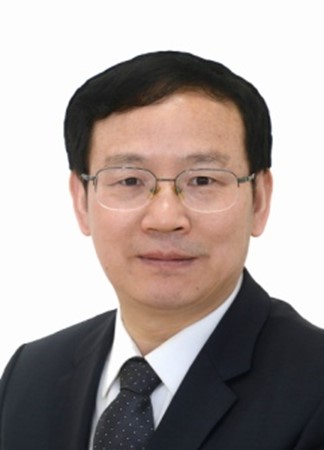 Fu-Sheng Wang (王福生),M.D., Ph.D.
Fu-Sheng Wang (王福生),M.D., Ph.D.
Professor of Medicine
Academician of Chinese Academy of Sciences
Director, Department of Infectious Diseases, The Fifth Medical
Center of Chinese PLA General Hospital
Beijing
China
Prof. Wang received his M.D & Ph.D. in Beijing Institute of Radiation Medicine, China in 1992. From 1996 to 1998, he did his post-doctoral training in the Department of Medical Oncology at Mount Sinai Medical School, New York University in United States. He was elected Academician of the Chinese Academy of Sciences in 2015, and then he was elected the next chairman of the Society of Infectious Diseases, Chinese Medical Association in 2020. Now he is the Director of both National Clinical Research Center for Infectious Diseases and the Department of Infectious Diseases, the Fifth Medical Center of Chinese PLA General Hospital.
He has been worked in management and translational study of infectious diseases for more than 30 years, and has been engaged in the clinical treatment of several major epidemics, including SARS in 2003, the avian influenza in 2009, Ebola in 2015 and COVID-19 in 2020. His research is focused on clinical immunology and cellular therapy for the patients with chronic HBV/HCV/HIV infections. He has hosted a number of major national scientific research projects and has been honored three times for the Second Prizes of National Science and Technology Progress. He has published more than 300 peer-reviewed research papers including NEJM, Lancet, Nature, Nature Immunology, Gastroenterology, Hepatology and Journal of Hepatology, which have been cited more than 32700 times.
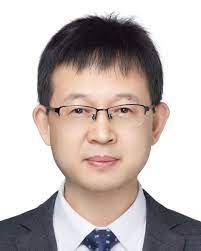 Liu Guanghui (刘光慧)
Liu Guanghui (刘光慧)
Programming and Reprogramming of Aging
State Key Laboratory of Membrane Biology
Institute of Zoology
Chinese Academy of Sciences
Beijing, 100101
China
Liu Guanghui, Ph.D., researcher, member of the Chinese Academy of Medical Sciences, fellow of the Academy of Physiology of the International Union of Physiological Sciences, deputy director of the Academic Committee of the Institute of Zoology, Chinese Academy of Sciences, deputy director of the State Key Laboratory of Membrane Biology, scientific data on stem cells and regenerative medicine of the Chinese Academy of Sciences Director of the Center, Vice President of the Beijing Institute of Stem Cell and Regenerative Medicine, Director of the Academic Committee, Project Leader of the National Natural Science Foundation of China’s Innovative Research Group, and recipient of the Outstanding Youth Fund. Graduated from Peking University School of Medicine in 2002 with a Bachelor of Science degree; received a Doctor of Science degree from the Institute of Biophysics, Chinese Academy of Sciences in 2007; from 2007 to 2012, he worked at The Scripps Research Institute and Salk University in the United States. He is engaged in postdoctoral research (Research Associate) at the Salk Institute for Biological Studies; he joined the Institute of Biophysics, Chinese Academy of Sciences as a researcher (PI) in 2012; and he has been a researcher (PI) at the Institute of Zoology, Chinese Academy of Sciences since 2019.
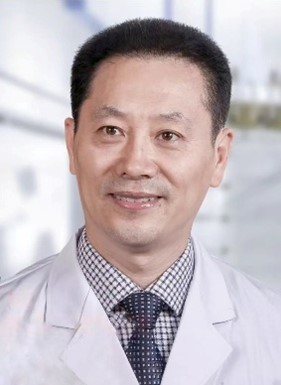 Robert Chunhua Zhao, M.D. PhD.
Robert Chunhua Zhao, M.D. PhD.
President, International Society on Aging and Disease (ISOAD)
Cheung Kong Scholar
Tenured Professor, Chairman at Center of Excellence in Tissue Engineering, Chinese Academy Medical Sciences & Peking Union Medical College
Dean, School of Life Sciences, Shanghai University
Director, Beijing Key Laboratory of New Drug Development and Clinical Trial of Stem Cell
Fellow, European Academy of Sciences, Arts and Humanities (EASAL)
Professor Zhao has been committed to stem cell biology, pharmacy, and clinical application for more than 30 years. He is the chief scientist of projects such as the National 973 Program, 863 Program, National Key R&D Program, etc. He has internationally proposed the concept of “Post-embryonic pluripotent stem cell theory”. He has published over 400 papers in international and domestic journals, with an H-index of 71. And from 2014 to 2022, he has been selected as a highly cited China scholar by Elsevier for 9 consecutive years. In 2004 his group won the first official approval of “mesenchymal stem cell” from SFDA as to start clinical trials in China. He was awarded the 1st Prize of Technological Invention from MOE and the 2nd Prize of National Technological Invention. He has established a translational medical system that integrates basic theories of integrated stem cells, key scientific technologies, and clinical trial treatment research.
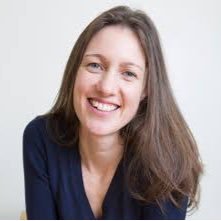 Georgina Ellison-Hughes, Ph.D.
Georgina Ellison-Hughes, Ph.D.
Professor of Regenerative Muscle Physiology
School Academic Lead (Development, Diversity & Inclusion)
King's College London
United Kingdom
Georgina Ellison-Hughes completed her PhD from Liverpool JM University, UK and postdoctoral studies at New York Medical College, and an AHA-funded fellowship at Mount Sinai School of Medicine, NYC, USA. She is Professor of Regenerative Muscle Physiology and Marie Curie Fellow at King’s College London, UK. Her research is at the forefront of cardiac regeneration/repair and targeting senescence, and has made a seminal contribution in the paradigm shifting work to establish the adult heart as a self-renewing organ with regenerative potential. She has published more than 70 peer-reviewed papers in reputed journals (Total Impact Factor = 510; Citations = 4750; H-index =36 (Scopus)) and is an Editorial Board member of Journal of Cardiovascular Aging, Scientific Reports, BMC Molecular and Cell Biology, PharmAdvances, Frontiers in Pharmacology - Cardiovascular and Smooth Muscle Pharmacology, Frontiers in Cardiovascular Medicine - Cardiovascular Biologics and Regenerative Medicine.
 Dr. Björn Schumacher
Dr. Björn Schumacher
Head of Research Area C – Principal Investigator
Chair for Genome Stability in Ageing and Disease
CECAD Research Center
University of Cologne
50931 Cologne
Germany
Since 2013, Björn Schumacher is full professor and director of the Institute for Genome Stability in Ageing and Diseases (IGSAD) at the CECAD Research Centre of the University of Cologne. He received his PhD at the Max Planck Institute for Biochemistry in Munich and conducted his postdoctoral research as EMBO and Marie Curie fellow at the Erasmus Medical Centre in Rotterdam. Professor Schumacher is President of the German Society for DNA Repair (DGDR), co-Director of the Minerva Center of the Biological Mechanisms of Healthy Ageing at Bar-Ilan University (IL), and between 2014 and 2020 served as President of the German Society for Ageing Research (DGfA). Since 2023, Schumacher is speaker of the DFG Research Unit FOR 5504 on “Physiological causes and consequences of genome instability”. He was awarded with the Eva Luise Köhler Research Prize, the Innovation Prize of the State of North Rhine-Westphalia, the European Research Council (ERC) grant, coordinated the FP7 Marie Curie initial training network on chronic DNA damage in ageing (CodeAge) and served on several editorial boards. His research interest focuses on the molecular mechanisms through which DNA damage contributes to cancer development and ageing-associated diseases. Employing the C. elegans system and mammalian disease models, his group uncovered cell-autonomous and systemic responses through which the organism adapts to accumulating DNA damage with ageing. Through the understanding of the basic mechanisms of genome instability-driven ageing, Schumacher aims to contribute to the development of future strategies to prevent ageing-associated diseases.
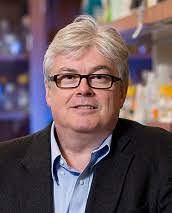 Stephen Dalton
Stephen Dalton
Professor/Global STEM Scholar
School of Biomedical Sciences
Faculty of Medicine
Chinese University of Hong Kong
Hong Kong
Before joining the Chinese University of Hong Kong as Global Stem Scholar and Professor in the School of Biomedical Sciences, Stephen Dalton (SD) was Professor and Endowed Chair in Molecular Cell Biology at the University of Georgia where he was founding Director of the "Center for Molecular Medicine" (cmm.uga.edu). Originally from the UK, Dr. Dalton received his Ph.D. from the University of Adelaide in Australia, followed by post-doctoral research at the Imperial Cancer Research Fund in London, with Sir Richard Treisman. Following this, SD was appointed as an Assistant Member at the Roche Institute of Molecular Biology (Hoffman La Roche, New Jersey, USA), with an academic appointment at Columbia University in New York City. Since then, SD has continued research on the biology of pluripotent stem cells and their use for therapeutic development. The latter includes collaborations with Johnson and Johnson (New Jersey, USA; therapies for type 1 diabetes), Nestle' (Lausanne, Switzerland; discovery of natural products for diabetes treatment) and Viacyte Inc. (San Diego, USA; cell therapy- type 1 diabetes). Dr. Dalton's research goals are to use proprietary stem cell technology, developed in his laboratory, to develop new therapies for the treatment of type 2 diabetes, pre-diabetes and obesity.
G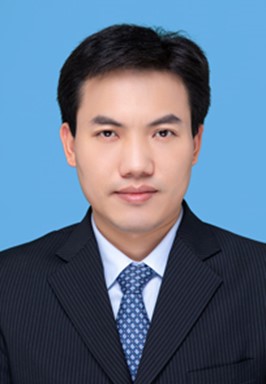 uo-He Tan, M.D., & Ph.D.
uo-He Tan, M.D., & Ph.D.
Professor,
Director of Key Lab of Longevity and Aging-related Diseases of Chinese Ministry of Education,
Director of Guangxi Key Laboratory of Brain Science, & Institute of Neuroscience,
Dean of School of Basic Medical Sciences, & Center for Translational Medicine,
Guangxi Medical University,
China
Dr. Guo-He Tan is the director of Key Lab of Longevity and Aging-related Diseases of Chinese Ministry of Education, the dean of School of Basic Medical Sciences & Center for Translational Medicine in Guangxi Medical University, the president of Guangxi Society for Anatomical Sciences, the council member of Chinese Society for Anatomical Sciences, who has about 20 years of research experience in neuroscience and anatomy. He started his academic career when he joined the staff of Chinese Academy of Sciences, where he earned a Ph.D. in neurobiology, to investigate the molecular and cellular mechanisms underlying neurological diseases. Thereafter, he moved to Guangxi Medical University and acts as a full-time professor in human neuroanatomy as well as principal investigator in brain sciences. Dr. Guo-He Tan has published a series of high-quality research papers in top-notch journals including Nature Neuroscience, Aging and Disease, Cell Research, and EMBO reports, that were cited over 1000 times till now. He is interested in the research area including neurodevelopment, stem cells, particularly pathogenesis of brain disorders.
.jpg) Xinjing Tang (汤新景)
Xinjing Tang (汤新景)
Professor and PI
State Key Laboratory of Natural and Biomimetic Drugs
School of Pharmaceutical Sciences
Peking University
Beijing
China
Dr. Xinjing Tang received his B.S. degree from Shandong University in 1997, and Ph.D. degree from Technical Institute of Physics and Chemistry, the Chinese Academy of Sciences in 2002. In 2003, he joined Professor Ivan J. Dmochowski’s group as a postdoctoral fellow and then as a research associate at the University of Pennsylvania. He then came back to China and set his lab at State Key Laboratory of Natural and Biomimetic Drugs, School of Pharmaceutical Sciences, Peking University. He has published over 90 papers including publications in Agnew. Chem. JACS, Nucleic Acids Res., J. Med Chem et al. He received several awards and funds, including Outstanding Youth Foundation of NSFC (2014), Changjiang Young Scholar (2015) and Excellent New Century Excellent Talents (2010) of Ministry of Education, Servier Young Investigator Awards in Medicinal Chemistry, and Luye Award for Distinguished Young Scientist. His current research interests include precise modification of functional oligonucleotides, nucleic acid drugs and nucleic acid drug delivery agents.
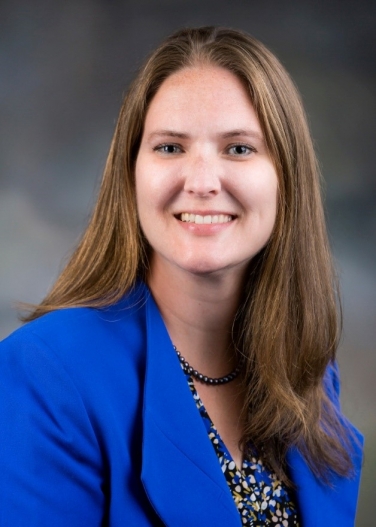 Stacy Hussong, Ph.D.
Stacy Hussong, Ph.D.
Assistant Professor, Research
Department of Biochemistry & Molecular Biology
University of Oklahoma Health Sciences Center
940 Stanton L. Young Blvd, BMSB 823
Oklahoma City, OK 73104
USA
Dr. Hussong earned her Ph.D. at the University of Minnesota studying the role of immunoproteasome in the retina in the laboratory of Dr. Deborah Ferrington. She joined the Galvan Lab as a postdoctoral fellow where her research focus was on the neurobiology of aging and Alzheimer’s disease. In particular, Dr. Hussong’s research has focused on the role of neuronal mTOR signaling and how it functions in brain and peripheral metabolism, and cognitive function including age-related and Alzheimer’s disease-related cognitive dysfunction. In transitioning to an Assistant Professor of Research, she has explored the role of mTOR signaling in brain and peripheral vasculature. Her data demonstrates that mTOR is a critical signaling pathway for driving endothelial cell dysfunction both with age as well as Alzheimer’s disease. Recently, in collaboration with Dr. Galvan, Dr. Hussong discovered that soluble pathogenic tau enters brain microvascular endothelial cells and triggers cellular senescence and brain microvascular dysfunction.
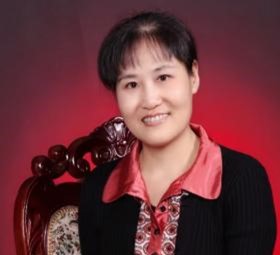 Sulan Luo (罗素兰)
Sulan Luo (罗素兰)
Professor & Ph.D.
Distinguished Professor of Chang Jiang Scholars Program
Dean, Medical School, Guangxi University,
Nanning
China.
Professor Sulan Luo, Ph.D., is Dean of Medical School at Guangxi University currently. She was selected as a distinguished professor of Chang Jiang Scholars Program, Science and Technology Innovation Leading Talent of “Wanren Jihua” and the leader of “Program for Innovative Research Team in University” of Ministry of Education etc. Prof. Luo acted as secretary of Asia-Pacific section of The International Society on Toxinology and president of 19th World Congress of the International Society on Toxinology (IST 2017 Haikou, China), as well as president of International Conference on Addiction Therapy & Clinical Reports (Addiction Therapy-2018) at Paris, France etc. Previously, she worked as a visiting scholar/professor in The University of Utah, USA; University of Queensland, Australia; University of Oxford, UK; Russia Academy of Sciences and the French National Center for Scientific Research (CNRS) of France etc for many times.
Her research interests focus on structure and function of conotoxins (conopeptides) native to South China Sea and their molecular receptors (ion channels), molecular biology, electrophysiology, biotechnology and marine medicine, and neuropeptides in marine organisms, among others. She discovered a series of new conotoxins/conopeptides that target various nicotinic acetylcholine receptor (nAChR) subtypes specifically. Structure and function characterization of more conopeptides are ongoing continuously. These novel conopeptides show great potential in medical applications, including chronic pain (neuropathic pain), addiction, anxiety/phobia, anti-wrinkle/aging, obesity, Alzheimer’s disease, schizophrenia and lung cancer etc.
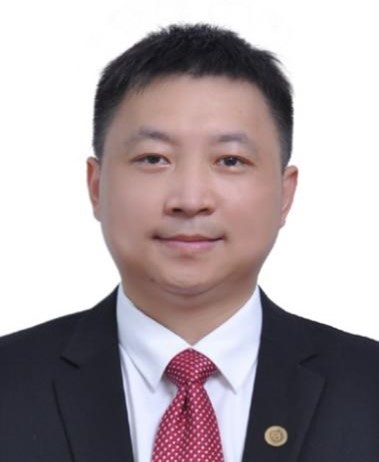 Li Jian (李剑)
Li Jian (李剑)
Vice President
East China University of Science & Technology
China
Jian Li is a professor and vice president at East China University of Science and Technology. He received such titles as the distinguished professor of "Chang Jiang Scholars Program" of the Ministry of Education, the leading talent in scientific and technological innovation of the National “Ten Thousand Talents Program" and Fellow of the Royal Society of Chemistry (FRSC). Prof. Li obtained Ph. D. from Shanghai Institute of Materia Medica, Chinese Academy of Sciences. Since July 2006, he has successively served as a lecturer, associate professor and professor at School of Pharmacy of East China University of Science and Technology. Now, his concurrent positions include member of the National Pharmacopoeia Committee, member of the National Drug Registration and Evaluation Expert Advisory Committee, external expert of the Center for Drug Evaluation of the National Medical Products Administration, head of the Yunnan Li Jian Expert Workstation, and vice chairman of the Shanghai Pharmaceutical Association Pharmaceutical Chemistry Professional Committee. In addition, he acts as the deputy editor-in-chief of Acta Material Medica and the member of the editorial board of Acta Pharmaceutical Sinica B and Chinese Chemical Letters. Prof. Li was recognized by awards including the first prizes of Natural Science Award of the Ministry of Education (R01/2019, R01/2022). The research team led by Li Jian is mainly committed to the secondary research & development of old drugs (chemical drugs and Chinese herbal medicine).
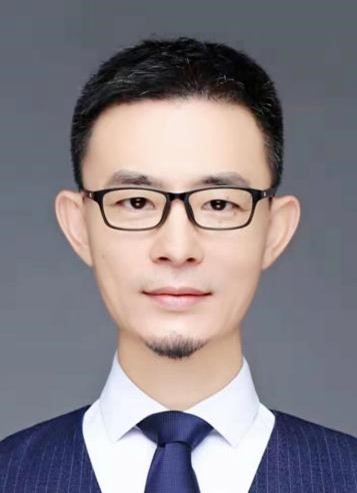 Zhenyu Ju (鞠振宇)
Zhenyu Ju (鞠振宇)
Dean of the Institute of Aging and Regenerative Medicine
Jinan University
National “Outstanding Youth” winner (2015)
National “Excellent Youth” winner (2012).
China
Dr. Zhenyu Ju is a professor at Jinan University in Guangzhou, China, where he directs the Institute of Aging and Regenerative Medicine. Prof. Ju obtained his doctor degree in 2007 at Hannover Medical School. After that, he joined Chinese Academy of Medical Sciences (CAMS, 2007-2011) as an associate professor, and started his professorship at Hangzhou Normal University (2011-2016). In 2016, Prof. Ju moved to Jinan University. Currently his research interest focuses on molecular mechanisms of stem cell and organ aging and related diseases using animal models. His research achievements include Elucidating the endogenous molecular mechanisms of telomere shortening in stem cell senescence; Stem cell function and homeostasis affected by telomere shortening via increased inflammatory cytokines in blood circulation; The interaction between telomere damage and abnormal energy metabolism. In addition, his lab is developing therapeutic approaches for treating aging-related diseases. Prof. Ju published a series of highly influential papers, including in Cell, Nature Genetics, Nature Medicine, Hepatology, Nature Communications, Cell Reports and Circulation Research.
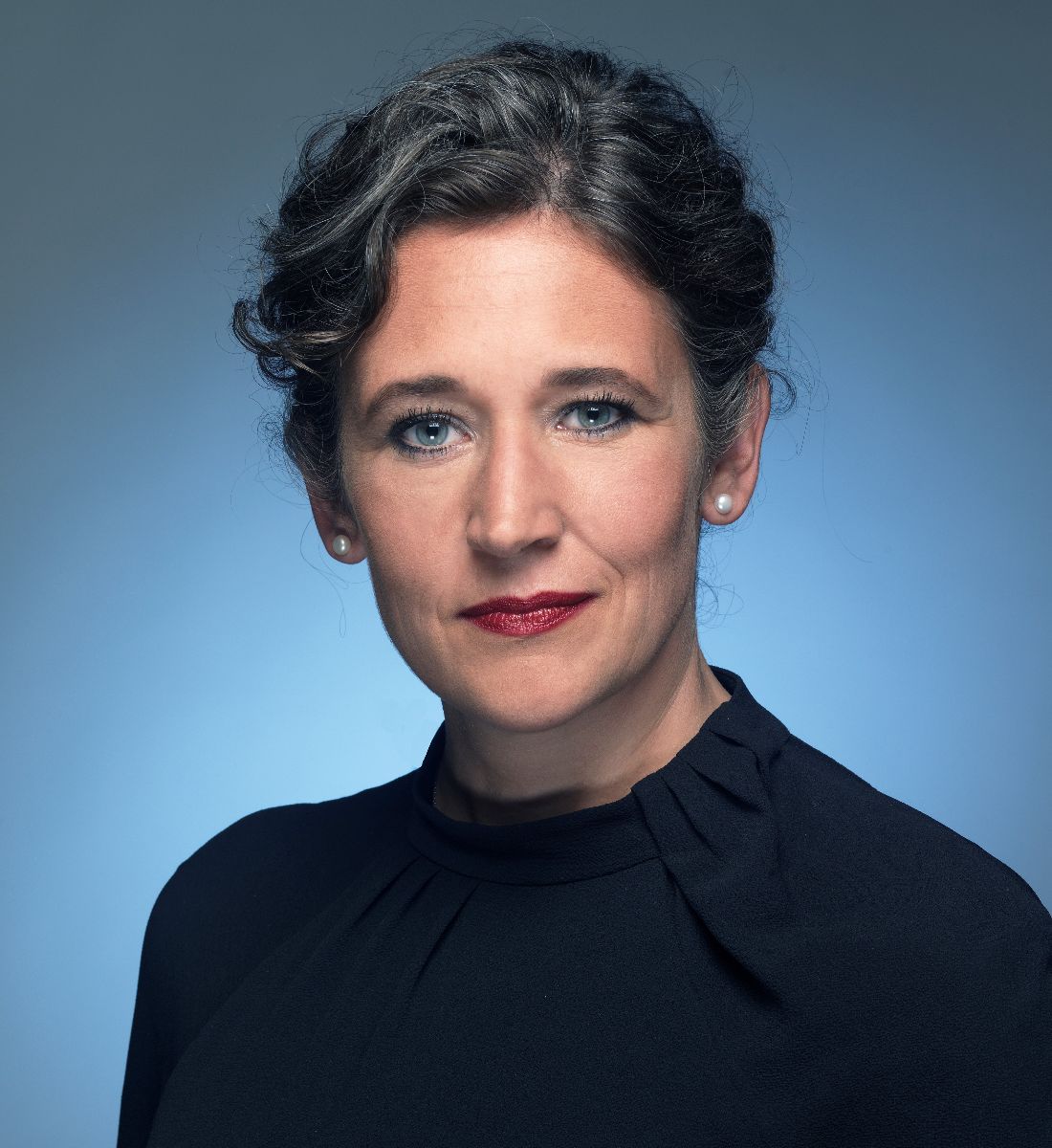 Andrea Britta Maier, MD PhD FRACP
Andrea Britta Maier, MD PhD FRACP
Oon Chiew Seng Professor in Medicine
Director, Healthy Ageing and Dementia Research
Yong Loo Lin School of Medicine,
National University of Singapore
Singapore
Andrea Maier, a Fellow of the Royal Australasian College of Physicians (FRACP), graduated in Medicine (MD) 2003 from the University of Lübeck (Germany), was registered 2009 in The Netherlands as Specialist in Internal Medicine-Geriatrics and was appointed Full Professor of Gerontology at Vrije Universiteit Amsterdam (The Netherlands) in 2013. She was the head of Geriatrics at the Vrije Universiteit Medical Center from 2012 to 2016. From 2016 to early 2021 Professor Maier served as Divisional Director of Medicine and Community Care at the Royal Melbourne Hospital, Australia, and as Professor of Medicine and Aged Care at the University of Melbourne, Australia. She continued her career at the National University of Singapore as Co-Director of the Centre for Healthy Longevity. Professor Maier’s research focuses on unraveling the mechanisms of ageing and age-related diseases. During the last 10 years she has conducted multiple international observational cohort studies and intervention trials and has published more than 350 peer-reviewed articles, achieving an H index of 63, spearheading the significant contributions of her highly acclaimed innovative, global, multidisciplinary @Age research group. She is a frequent guest on radio and television programs to disseminate aging research and an invited member of several international academic and health policy committees, including the WHO. She is the past president of The Australian and New Zealand Society for Sarcopenia and Frailty Research, the founding president of the Healthy Longevity Medicine Society and serves as selected Member of The Royal Holland Society of Sciences and Humanities.
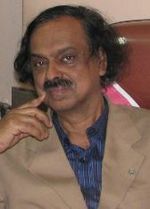
Co-ordinator
Central Research Cell
M M Institute of Medical Sciences & Research
Maharishi Markandeshwar Deemed University
Mullana, Ambala, Haryana 133207, India
Prof. Sasanka Chakrabarti is at present the Co-Ordinator of Central Research Cell, M M Institute of Medical Sciences & Research, Maharishi Markandeshwar Deemed University, Mullana, Haryana, India, and looks after the different bio-medical research programs of the University. Prof. Chakrabarti with his collaborators and research scholars is actively engaged in research on brain aging and neurodegenerative diseases such as Alzheimer’s disease and Parkinson’s disease supported by generous grants from the institute as well as funding agencies of Govt. of India. He extensively uses both animal and cell-based models of neurodegenerative diseases employing a variety of biochemical and cell biological techniques. The emphasis is on mitochondrial dysfunction, altered redox signaling and proteinopathy associated with these conditions. He also works with clinical cases of Alzheimer’s disease and Parkinson’s disease for identification of genetic and metabolic risk factors of these diseases in collaboration with the Dept. of Neurology. A major part of the research career of Prof. Chakrabarti was spent in the Dept. of Biochemistry, Institute of Post-graduate Medical Education & Research, Kolkata, a premier medical institute of eastern India, where he started his work on brain aging and neurodegenerative diseases in 1995 and continued till 2014. Prof. Chakrabarti graduated in Medicine from Calcutta University in 1978 and obtained post-graduate degree in Medicine with specialization in Biochemistry from Banaras Hindu University in 1985. He served in various academic positions during his long career perfoming both research and teaching duties and has been the principal supervisor of 30 post-graduate students (MD) and 22 graduate science students (Ph.D). He is a member of the executive committees of several scientific societies in his field, and also served as the Vice-President of Indian Academy of Neurosciences and as a member of the Editorial Board of Aging and Disease, J Alzheimers Dis, Current Aging Sci, Current Alzheimer Res etc. He with his lab members organized six international conferences (NEUROCON) on Neurodegeneration and Neuroregeneration beginning from 2009 in Kolkata, Haldia and Muullana in India. He received the fellowship of Indian Academy of Neurosciences and West Bengal Academy of Science & Technology.
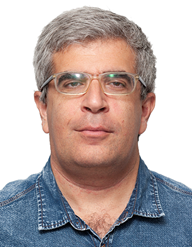 Ilia Stambler, Ph.D.
Ilia Stambler, Ph.D.
Chairman and CSO
Vetek (Seniority) Association – The Movement for Longevity and Quality of Life, Israel
Board member. International Longevity Alliance.
Policy Director. Global Healthspan Policy Institute
Israel
Ilia Stambler, PhD, is Director of Research and Development at Shmuel Harofe Geriatric Medical Center in Beer Yaakov, Israel (Affiliated to Sackler School of Medicine, Tel-Aviv University) and Chief Science Officer of “Vetek” (Seniority) – the Movement for Longevity and Quality of Life (Israel). He received his PhD at the Department of Science, Technology and Society, Bar Ilan University, Israel. His research has focused on the historical and social implications of aging and life extension research. He is also involved in mathematical modeling of aging and aging-related diseases (https://ec.europa.eu/eip/ageing/commitments-tracker/a3/quantified-longevity-guide-qlg_en). He is the author of the books "A History of Life-extensionism in the Twentieth Century" and "Longevity Promotion: Multidisciplinary Perspectives" (www.longevityhistory.com).
He is actively involved in advocacy for aging and longevity research (www.longevityforall.org), serving as the chairman of the Israeli Longevity Alliance (http://www.longevityisrael.org/), executive committee member of the International Society on Aging and Disease (http://www.isoad.org/) and International Longevity Alliance (http://www.longevityalliance.org), fellow and policy director at the Global Healthspan Policy Institute (https://healthspanpolicy.org/).
His papers have appeared in Progress in Neurobiology, Aging and Disease, Cancer Detection and Prevention, Rejuvenation Research, Current Aging Science, Global Aging, Mechanisms of Ageing and Development, Frontiers in Genetics, Geroscience, Encyclopedia of Gerontology and Population Aging, Encyclopedia of Biomedical Gerontology, and other scientific journals and books.
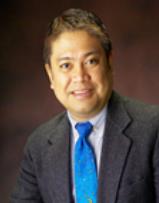 Abbe de Vallejo, PhD
Abbe de Vallejo, PhD
Tenured Professor of Pediatrics and Immunology, University of Pittsburgh School of Medicine
Associate Professor, Division of Rheumatology, UPMC Children’s Hospital of Pittsburgh
Director, Flow Cytometry Facility, John G. Rangos Sr. Research Center
Pittsburgh, USA
Abbe N. de Vallejo PhD is a highly regarded researcher and educator. He is Professor with Tenure at the University of Pittsburgh School of Medicine, holding academic appointments in the Departments of Pediatrics and Immunology. Dr. de Vallejo leads a research program on the Immunobiology of Aging, in which he uncovered the transcriptional basis for the irreversible loss of CD28, validating CD28null T cells as the unique bioindicator on T cell aging in humans. His current projects focus on the integrative physiology of healthy longevity, in which he advocates a research paradigm shift from the usual young-versus-old comparison to the analyses of defined elderly populations. He also leads a complementary program on the Biology of Inflammation, with primary interest on juvenile and adult arthritis and obesity. In arthritis biology, his research was the first to show premature T cell aging in the pathogenesis of juvenile arthritis. Dr. de Vallejo is author and co-author of numerous articles published in leading scientific journals. He served as associate editor of the Journal of Immunology, and a special issue editor of Aging Research Reviews. He is currently an editorial board member of Aging and Disease, and associate editor of Frontiers in Immunology. He was a recipient of the Julie Martin Career Award on Aging, and he serves on the National Scientific Advisory Council of the American Federation for Aging Research. He is a reviewer for more than 30 scientific journals and served (continue to serve) in study sections/advisory panels of various private foundations, research programs of academic institutions, and US federal agencies including the National Institutes of Health. He is member of the American Association of Immunologists, American College of Rheumatology, and Gerontological Society of America. Dr de Vallejo is fellow of The Royal Society of Medicine.
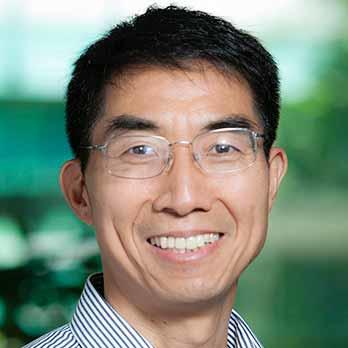 Nan Hao, Ph.D.
Nan Hao, Ph.D.
Professor
Molecular Biology and Bioengineering
Associate Director of Synthetic Biology Institute
University of California San Diego, CA,
USA
E-mail: nhao@ucsd.edu
Nan Hao received his B.S. degree in Biochemistry from Peking University in China in 2001 and his Ph.D. degree in Biochemistry and Biophysics from University of North Carolina (UNC) at Chapel Hill in 2006. He obtained postdoctoral training on Computational Biology with Tim Elston at UNC-Chapel Hill and postdoctoral training on Systems Biology with Erin O’Shea at Harvard University/HHMI. Nan Hao became an Assistant Professor at UCSD in 2013 and was promoted to Associate Professor in 2018 and Full Professor in 2022. He is currently a Professor of Molecular Biology and Bioengineering and Associate Director of Synthetic Biology Institute at UCSD.
The Hao laboratory develops and uses multidisciplinary approaches, integrating high-throughput dynamic measurements with computational modeling, to investigate how molecular networks govern the dynamics and function of regulatory responses to stress, aging, and disease. In recent years, the Hao lab pioneered the use of Systems and Synthetic Biology approaches to investigate the basic mechanisms underlying the aging process. He identified core molecular circuits that govern the progression of single-cell aging trajectories and constructed predictive computational models that guide the design of synthetic gene clock that effectively slows aging. His studies have been published in major journals, including Science, PNAS, and eLife, and have been featured by major news outlets, such as CNN, NPR, DailyMail, and Fox News. He received Chinese Biological Investigators Society (CBIS) Young Investigator Award in 2022.

William C. Cho, Ph.D.
Biomedical Scientist
Department of Clinical Oncology
Queen Elizabeth Hospital
Hong Kong
China.
Email: williamcscho@gmail.com
Prof William Cho primarily focused on cancer studies with the aim of identifying biomarkers for cancer diagnosis, treatment prediction, and prognosis. As a seasoned researcher, I have employed various disciplines such as molecular biology, proteomics, genomics, immunology, and bioinformatics to conduct cancer research. I am proud to have contributed over 600 peer-reviewed papers to reputable journals including Lancet, Lancet Oncology, Annals of Oncology, Advanced Science, Nature Communications, Cancer Communications, PNAS, Science Advances, Journal of the National Cancer Institute, Journal of Extracellular Vesicles, Clinical Cancer Research, Molecular Cancer, and Theranostics, among others. These publications cover a wide range of topics including cancer biomarkers, non-coding RNAs, extracellular vesicles, drug repurposing and Chinese medicine. Additionally, I am an editor of over two dozen of books, including "MicroRNAs in Cancer Translational Research", "An Omics Perspective on Cancer Research", "Supportive Cancer Care with Chinese Medicine", "Drug Repurposing in Cancer Therapy: Approaches and Applications", and “Resistance to Anti-CD20 Antibodies and Approaches for Their Reversal” to name a few. Dr Cho published papers have garnered more than 25,000 citations and Dr Cho is being listed in the top 2% most influential scientists in the world.
Patr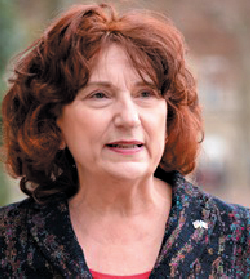 izia D'ALESSIO, MD, PhD
izia D'ALESSIO, MD, PhD
CEO AISA Therapeutics
Research Associate Professor
Universities Paris René Descartes and Paris Su
France
Dr Patrizia A D’ALESSIO, expert of mechanisms of inflammation in chronic inflammatory diseases, aging and stress. Prof. d’Alessio studied Medicine and Hematology at the University of Milan, obtained her PhD in Sciences from the Utrecht University and worked as professor and researcher at the department of Cell Biology at the Universities of Paris 5 and Paris 11. Her work has been focusing on cellular mechanisms of premature aging, induced by stress. Procrastinated inflammation and stress are able to induce and accelerate diseases, as consequence of increased cell senescence. 3 patents granted in Europe, USA and Chia decorate these discoveries. Since 2015, the AISA Moleculum trademark, resulting from 10 years of preclinical and clinical studies - including the European FP7 Ristomed project - offers a dietary and cosmetic supplement to relieve stress and the signs of inflammation.
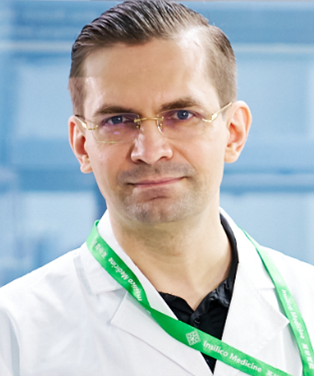 Alex Zhavoronkov, PhD
Alex Zhavoronkov, PhD
The founder and CEO of Insilico Medicine
Adjunct professor of artificial intelligence
Buck Institute for Research on Aging.
California
USA
Alex Zhavoronkov is a leader in next-generation generative artificial intelligence technologies for drug discovery and biomarker development. Under his leadership, Insilico raised over $400 million in multiple rounds from expert investors, opened R&D centers in six countries or regions, partnered with multiple pharmaceutical, biotechnology, and academic institutions, nominated 12 preclinical candidates, and entered human clinical trials with AI-discovered novel target and AI-designed novel molecule. Since 2015 he has invented critical technologies in the field of generative artificial intelligence and reinforcement learning (RL) for generation of novel molecular structures with the desired properties and generation of synthetic biological and patient data. Since 2012 he published over 160 peer-reviewed research papers and 2 books.
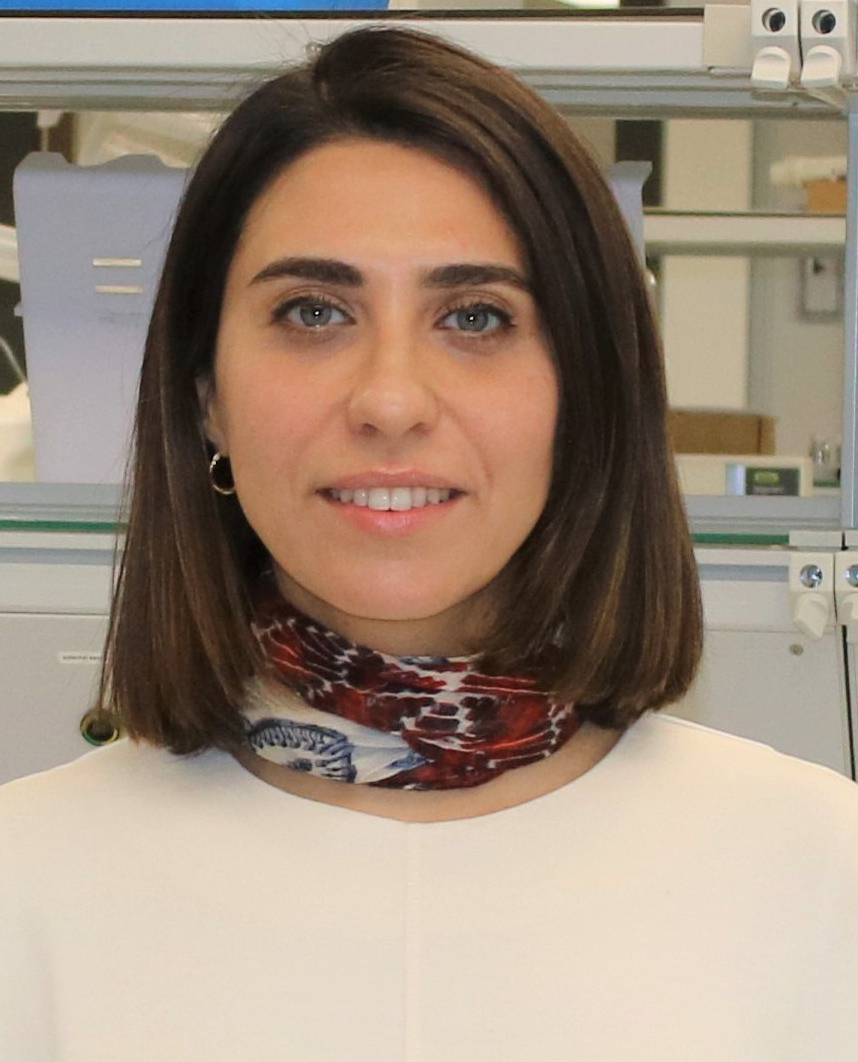 Perinur Bozaykut Eker, PhD
Perinur Bozaykut Eker, PhD
Associate Professor
Molecular Biology & Genetics
Acibadem University
Istanbul
Turkey
Dr. Perinur Bozaykut-Eker graduated from Marmara University with a BS degree in Biological Sciences and pursued her MSc and PhD degrees in Medical Biochemistry at Marmara University. During her MSc studies, she took part as visiting researcher in King’s College London at Cardiovascular Division. Later, she worked as a postdoctoral fellow at Harvard Medical School & Genetics Division where her research involved transcriptomics analysis of aging & lifespan extension and targeted drug repurposing. Currently, Dr. Perinur Bozaykut Eker is working as an Associate Professor at Acibadem University. Her research primarily revolves around identifying distinctive interventions through the utilization of long-lived models and applying them to short-lived models or to enhance human healthspan. Dr Bozaykut-Eker has received several awards from Physiological Society, SFRR-Europe, and the Turkish Biochemistry Society so far. In 2022, she has been elected as the Turkey president of the "International Society on Aging and Disease".
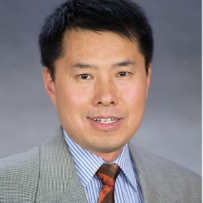 Yulin Ge, MD
Yulin Ge, MD
President of International Society for Neurovascular Diseases (ISNVD)
Professor
Department of Radiology
Grossman School of Medicine
New York University
New York, USA
Dr. Yulin Ge is a Professor of Radiology at New York University School of Medicine. After he finished his research fellow training in Kumamoto University in Japan and in University of Pennsylvania, he joined the Department of Radiology at New York University in 2001 and became an Assistant Professor. Later he became a Full Professor. Dr. Ge has a broad background in neuroimaging research of developing and applying advanced MR imaging to study various brain disorders. Some of his research goals are to examine and elucidate the underlying disease mechanisms and progression in a number of neurodegenerative diseases such as multiple sclerosis (MS), traumatic brain injury (TBI), and Alzheimer’s disease (AD). Dr. Ge is a recipient of the Cornelius Dyke Award from American Society of Neuroradiology (2007). He is also the 2019 Distinguished Investigator from Academy of Radiology and Biomedical Research, whose mission is to acknowledge and celebrate high levels of achievement in the field of academic imaging research. Dr. Ge has received research grants awards from the National Institutes of Health (NIH), National Multiple Sclerosis Society (NMSS), and Alzheimer’s Association. In recent years, Dr. Ge’s research interest has been on the role of microvascular changes in aging and dementia.
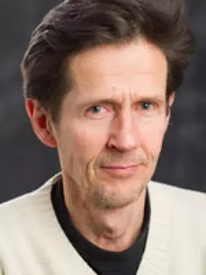 Brun Ulfhake, PhD
Brun Ulfhake, PhD
Professor
Division of Clinical Physiology
Department of Laboratory medicine
Karolinska University Hospital
Karolinska Institutet
Stockholm
Sweden
Brun Ulfhake received his M.D. from Karolinska Institutet in 1980. He combined his medical studies with researching. In 1982 he received his Ph.D. with a dissertation about electrical characteristics, function and structure in central nerve cells. Thereafter he was active in the clinic as an anesthesiologist and diving physician, while at the same time he carried out neurobiological research at Karolinska Institutet. In 1988 he was appointed Associate Professor, and in 1994 was appointed University Lecturer. For a period in the beginning of the 1990s, Brun Ulfhake was a postdoctor with NIH in USA, and since 1991 has carried out research at Karolinska Institutet on the connection between our genetic material and changes in the function of the nerve system during aging. Brun Ulfhake was appointed Professor in Anatomy at Karolinska Institutet on March 1, 2001. Brun Ulfhake has had a number of engagements within both teaching at Karolinska institutet as the Director of Anatomy Education, as well as being engaged in laboratory animal ethical matters. Since January 1, 2013, Brun Ulfhake has been the Director for Comparative Medicine.
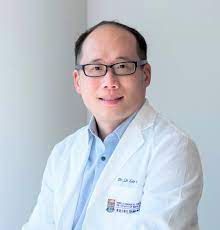 Lee Wei Lim, MD, PhD
Lee Wei Lim, MD, PhD
Assistant Professor and PI
the University of Hong Kong
Hong Kong
Dr. Lim’s research is focused on basic and translational neurosciences looking at existing neuromodulatory and neuropharmacological treatments for neurodegenerative and psychiatric disorders. More specifically, his interests are directed towards understanding the neural basis of mood and anxiety disorders, as well as neurodegenerative diseases, particularly Alzheimer’s disease and other aging-related cognitive disorders. His research encompasses different interrelated methodologies including cellular and molecular techniques, electrophysiology, behavioral and neurochemical methods, which together provide a multidisciplinary approach to understanding how neurostimulation interfaces with brain networks via controlling neuronal activity and the microcellular environment.
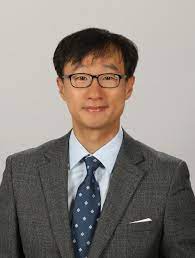 Kyung-Jin Min, PhD.
Kyung-Jin Min, PhD.
Director of Korean Society for Gerontology
Associate Professor
Department of Biological Sciences
Inha University
Incheon
South Korea
Dr. Kyung-Jin Min is Associate Professor at the Department of Biological Sciences, Inha University, Incheon, Korea. Dr. Min received his BS and MS in Biology from Korea University, and PhD in Zoology at University of Texas, Austin. Previously he did his post-doctoral research at Brown University and was assistant professor at University of Alaska, Anchorage.
His research focuses on testing compounds and extracts that may be able to positively impact the underlying causes of aging-related disease using Drosophila, the fruit fly. Recently, his experiments were able to confirm these effects for curcumin, D-chiro-inositol and mistletoe extracts. Another recent result of his research showed that the life expectancy of Korean eunuchs are at least 14 years longer than normal men, showing the clear cost to human longevity by reproduction. He currently serves as associate editor of Entomological Research, review editor of Frontiers in Genetics of Aging.
 Evelyne Yehudit Bischof, MD, MPH, FEFIM
Evelyne Yehudit Bischof, MD, MPH, FEFIM
Professor Shanghai University of Medicine and Health Sciences | Shanghai, PRC
Visiting professor, Tel Aviv University School of Medicine
Chief physician Internal medicine University Hospital of Jiatong School of Medicine Renji | Shanghai
International Center for Multimorbidity and Complexity in Medicine (ICMC), Universität Zürich, Schweiz
Longevity concierge physician Human Longevity Inc. | San Diego
Prof. Evelyne Bischof is a chief physician associate of internal medicine at University Hospital Renji of Jiaotong University Shanghai and concierge longevity physician for executive longevity patients. Currently, she is also affiliated with the International Center for Multimorbidity and Complexity in Medicine (ICMC), Universität Zürich, and was prev. senior physician of internal medicine at the University Hospital Basel. She is a Swiss board certified (FMH) trained in Europe, USA and China (Harvard Medical School affiliated hospitals (Mass General Hospital, Beth Israel MD, Dana Farber Institute) and Columbia University NYC; Tongji University hospitals, Shanghai and University Hospitals of Zurich and Basel (Switzerland). Her research focus is oncology and longevity medicine, Artificial Intelligence (AI) and digital health, precision medicine, biogerontology, and geronto-oncology. She published over 80 peer-reviewed papers, is a frequent speaker at scientific and medical conferences in Asia and Europe. Long term member of various medical societies, e.g. European Federation of Internal Medicine, World Academy of Medical Sciences, Swiss Society of Internal Medicine etc. Evelyne spent a decade practicing medicine, lecturing at medical schools and performing clinical and translational research in New York, Shanghai and Basel, with extensive experience in scientific research and clinical practice at the following well-known and highly reputable institutions: University Hospital of Basel, Fudan Cancer Institute and Hospital; Zhongshan Hospital, Renji Hospital and Shanghai East Hospital. She sits on several scientific and advisory boards of biotech and longevity hubs.
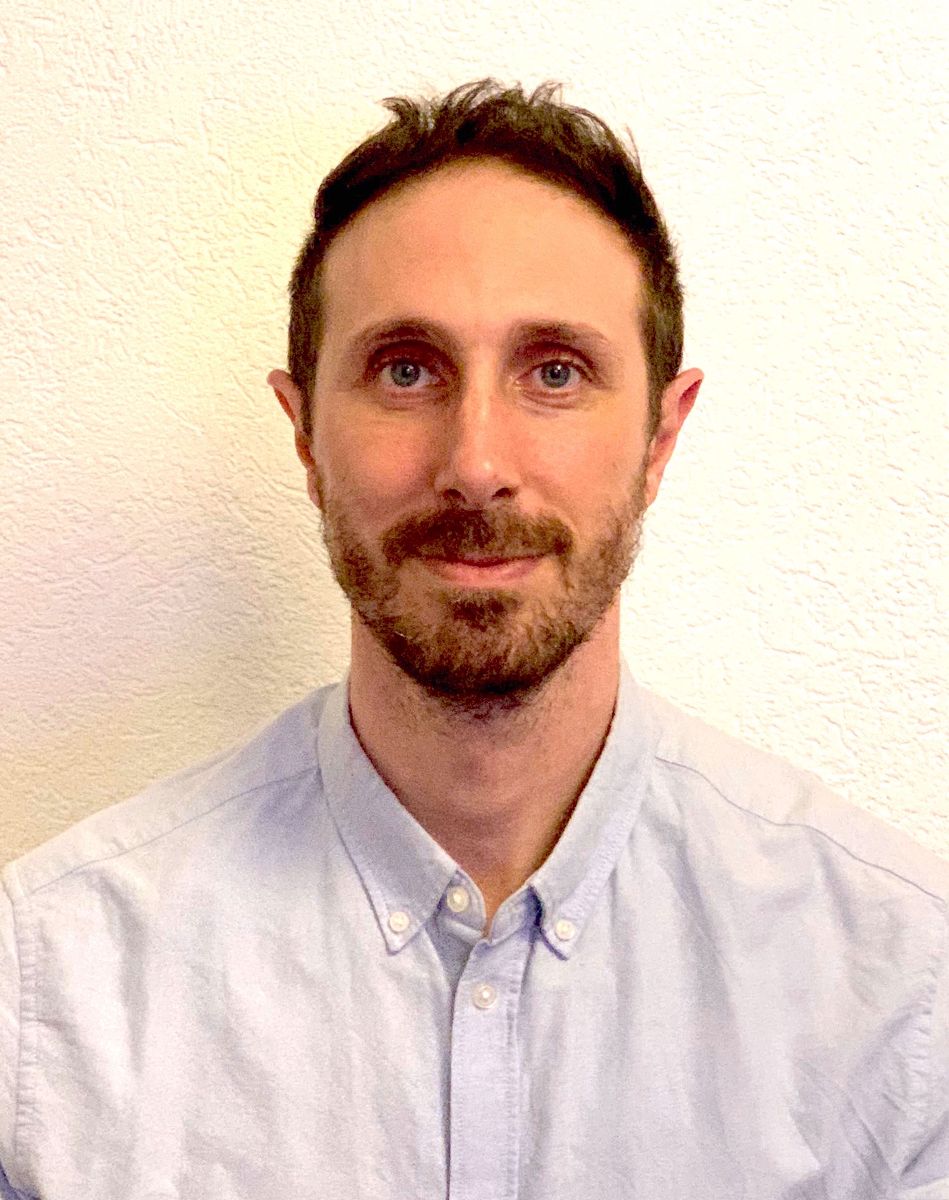 Vincenzo Sorrentino, PhD
Vincenzo Sorrentino, PhD
Assistant Professor, Department of Biochemistry
Healthy Longevity Translational Research Program
Yong Loo Lin School of Medicine
National University of Singapore
Singapore
Vincenzo Sorrentino is an Italian-born scientist in the fields of aging, mitochondrial biology and neuromuscular degeneration. After his PhD Cum Laude obtained at the University of Amsterdam in medical biochemistry, he carried his postdoctoral research in Prof. Johan Auwerx’s lab at the EPFL in Switzerland. His work focused on mitochondria and NAD+ metabolism in Alzheimer’s disease and muscle aging, with his discoveries appearing in Nature (2017) and Cell Reports (2021). From 2019 till 2022, he took a role as Group Leader at the Nestlé Institute of Health Sciences in Switzerland, to lead research focused on integrating basic discoveries on natural bioactives that modulate NAD+, mitochondria and protein homeostasis with their possible translation into clinical applications. Currently, he is Assistant Professor and launched his research lab at the NUS with the Dept. of Biochemistry and the Healthy Longevity Transitional Research Program, Yong Loo Lin School of Medicine.
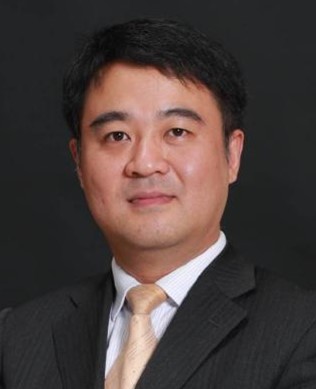 Jian Zhou (周建), M.D.
Jian Zhou (周建), M.D.
Professor
Leading talent of the National Ten Thousand Talents Plan
Leading Talent of the National Innovation Talents Promotion Plan,Young Yangtze River Scholar from the Ministry of Education.Deputy Director of Vascular Surgery, Changhai Hospital Affiliated to Naval Medical University
Deputy Director of the Institute of Vascular Surgery of PLA.
Chairman of the Endovascular Research and Translational Medicine Expert Committee of the Chinese Medical Doctor Association
Mainly engaged in research on new technologies for the diagnosis and treatment of vascular diseases. Undertaking major research projects such as the National Natural Science Foundation of China and key national defense science and technology projects; Obtained 64 national patent authorizations (including 22 invention patents); Published 83 SCI papers in international journals such as JACC with a total impact factor of 383; Received the second prize of the National Science and Technology Progress Award, the first prize of the Ministry of Education's Science and Technology Progress Award, the first prize of the Chinese Medical Science and Technology Award, and the first prize of the Shanghai Science and Technology Progress Award, as well as the special contribution award of China's cutting-edge scientific and technological figures, and the excellent demeanor award of national famous doctors.
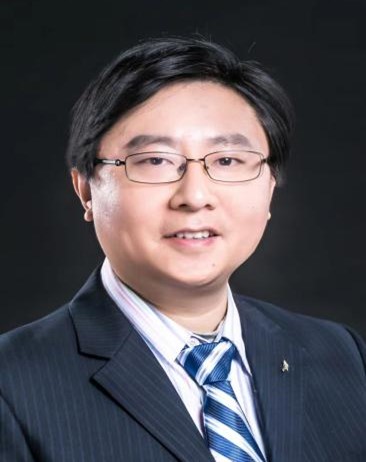 Xiaolei Zuo(左小磊)
Xiaolei Zuo(左小磊)
Professor
the Institute of Molecular Medicine
Renji Hospital, School of Medicine
Shanghai Jiao Tong University
Shanghai
China
In 2008, he obtained a PhD in inorganic chemistry from the Shanghai Institute of Applied Physics, Chinese Academy of Sciences. From 2008 to 2010, he engaged in postdoctoral research in the Department of Chemistry, University of California, Santa Barbara. From 2010 to 2012, he worked as a postdoctoral researcher at Los Alamos National Laboratory in the United States. From 2012 to 2017, he served as a researcher in the "Hundred Talents Plan" of the Shanghai Institute of Applied Physics, Chinese Academy of Sciences. Currently, he is a researcher at the Institute of Molecular Medicine, Shanghai Jiao Tong University School of Medicine, a researcher at Renji Hospital, and a doctoral supervisor. In 2014, he won the National Natural Science Foundation of China Outstanding Youth Fund Project (outstanding project completion in 2017). In 2017, he won the first prize of the Science and Technology Award of the China Association for Analysis and Testing (ranked first). In 2017, he won the honorary title of Young Changjiang Scholar of the Ministry of Education. Selected into the 2013 Chinese Academy of Sciences Hundred Talents Program (excellent results in 2017) and the 2018 Shanghai Shuguang Scholars Program. He has long been engaged in research in the fields of electrochemical biosensing, DNA three-dimensional nanoprobes, and early detection of diseases. Published more than 80 papers in academic journals such as Nat Biomed Eng, Nat Protoc, Chem Rev, JACS, Angew Chem Int Ed, Adv Mater, Nano Lett, etc. The papers were cited more than 5,000 times by SCI, of which 8 were selected as ESI highly cited papers. Relevant work has been introduced as research highlights or highly praised by Nat Nanotechnol, Nat Rev Mater, Nat Chem, etc.
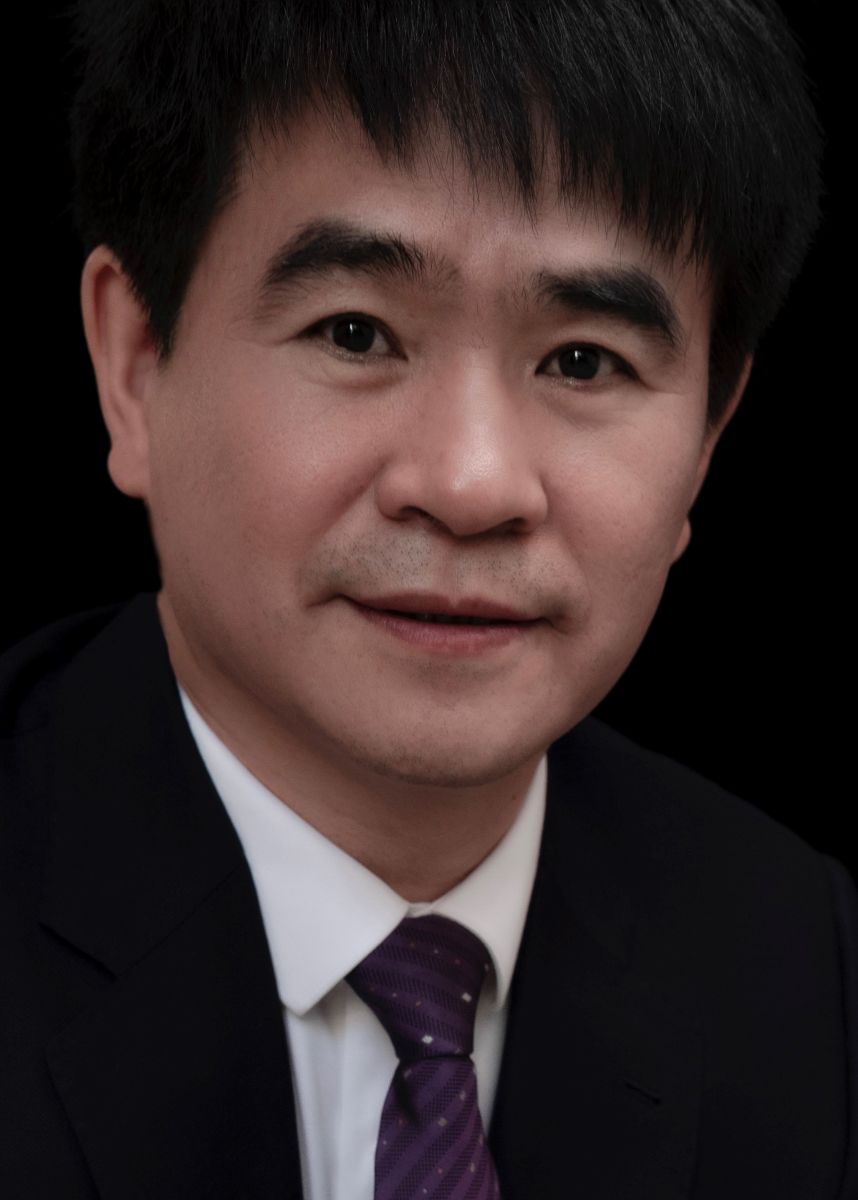 Gong Weijun
Gong Weijun
Director Physician
Professor, Doctoral Supervisor,
Doctor of Rehabilitation Medicine and Physical Therapy,
Vice-Dean of Beijing Rehabilitation Hospital and Rehabilitation Medicine School affiliated with Capital Medical University
Beijing
China
Dr. Gong is a leading talent of the Beijing Jingxian Program and has been awarded the first prize of Provincial and Ministerial Teaching Achievements, as well as the Huaxia Medical Science and Technology Award. Dr. Gong is the review expert of the National Natural Science Foundation of China and major projects of the Ministry of Science and Technology. His main research focus is on neurological rehabilitation.
Dr. Gong has undertaken more than 10 research projects at or above the provincial and ministerial levels, including projects funded by the National Natural Science Foundation. He is currently presiding over the following projects: the National Natural Science Foundation of China (81972148, 82372557), the Natural Science Foundation of Beijing, China(7222101), and the Key Research Project of the Capital Health Development Special Program (202211355).
Dr. Gong has published over 100 papers, including more than 30 SCI papers. He serves as the editorial reviewer for the Chinese Journal of Rehabilitation Medicine and other journals as well as the editor-in-chief or co-editor of 10 monographs such as Sports Therapy Technology. He is the chief editor of the 14th Five-Year Plan undergraduate standardized textbook such as Rehabilitation Medicine and Clinical Rehabilitation.
Dr. Gong is also the executive director of the China Anti-Aging Promoting Association and concurrently the president of the Rehabilitation Branch, the deputy secretary general of the Chinese Association of Rehabilitation Medicine and Rehabilitation Assessment Unit the chairperson of the Committee for Science and Technology Management and Evaluation, and the member of the standing committee of the Chinese Society of Physical Medicine and Rehabilitation and concurrently the team leader of the Rehabilitation Assessment Unit.
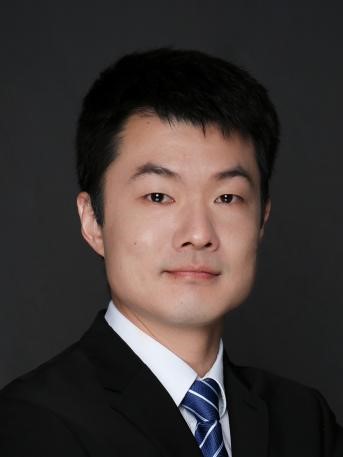 Zhang Haitao (张海涛)
Zhang Haitao (张海涛)
Associate professor,
School of Pharmacy
Zhejiang University
Zhejiang
China
Zhang Haitao is the project leader, School of Pharmacy, Zhejiang University, director of the Structural Biology and Drug Discovery Research Center, core member of the National Key Laboratory of Advanced Drug Delivery Systems, preclinical research on anti-tumor drugs in Zhejiang Province Core member of key laboratory. PhD from Shanghai Institute of Materia Medica, Chinese Academy of Sciences, postdoctoral fellow at Scripps Research Institute and University of Southern California. He has long been engaged in the study of the structure and function of important drug target proteins related to major diseases and the discovery of targeted drugs. He has published many research papers in top international academic journals such as Nature, Cell, PNAS, EMBO J, and Nature Communications. Hosted national key R&D plans, major national new drug creation projects, outstanding youth projects, major research plans, international cooperation projects, etc., and won the Ministry of Education Young Yangtze River Scholars, Fok Ying-tung Young Teacher Award, International Young Chemical Biologist Award, and Kang Enba Outstanding Youth Scientists etc. He serves as a member of the Analytical Pharmacology Professional Committee of the Chinese Pharmacological Society, a director of the International Society of Chemical Biology, and an adjunct professor at the Second Affiliated Hospital of Zhejiang University School of Medicine.
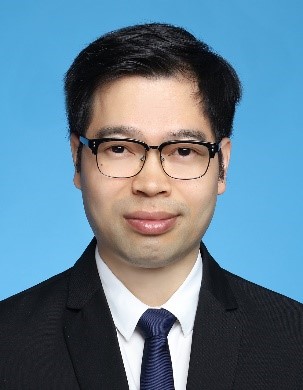 Shi-Qing Cai (蔡时青)
Shi-Qing Cai (蔡时青)
Center for Excellence in Brain Science and Intelligent Technology, Institute of Neuroscience
Chinese Academy of Sciences
Shanghai
China
Dr. Shi-Qing Cai obtained his PhD degree from Shanghai Institute of Plant Physiology & Ecology, Chinese Academy of Sciences, and did his postdoctoral training at Robert Wood Johnson Medical School, Rutgers University. His postdoctoral work mainly focused on the oxidative regulation of potassium channels in the aging nervous system. He joined Institute of Neuroscience, Chinese Academy of Sciences, in 2009. Currently, his study aims to understand 1) the neural basis of healthy aging (Yin & Liu et. al. Journal of Neuroscience 2014, Yin & Gao et. al. Nature 2017, Yuan et. al. Nature 2020); 2) the mechanism underlying ion channel biogenesis including folding, assembly and trafficking (Chen et. al. Journal of Neuroscience 2015, Li et. al. Molecular Cell 2017, Jiang et. al. Nature Communications 2018, Yao et. al. PNAS 2023).
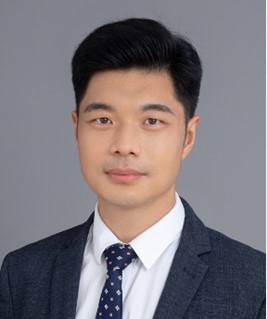 Prof. Xingguo Liu (刘兴国)
Prof. Xingguo Liu (刘兴国)
PI and Professor
Guangzhou Institutes of Biomedicine and Health
Chinese Academy of Sciences
Guangzhou
China
Professor Xingguo Liu, was honored as “Distinguish Youth Foundation” of National Natural Science Foundation, Chief Scientist of the National Key Research and Development Program of China, 1st finisher of the first prize of the Guangdong Science and Technology Award in Natural Science, The Shulan Medicine Youth Award by the Academician Shusen Lanjuan Talent’ Foundation, The Ying Ding Science and Technology Award, “2016 Stem cell Young Investigator Award” from Chinese Society for Cell Biology and “Young Bioenergeticist Award” of the International Biophysical Society. He is the Executive Editor of Science Bulletin, the council member of the Asian Society for Mitochondrial Research and Medicine, and the council member of the Biophysical Society of China. He has been focusing on mitochondrial controlling stem cell fate and aging.
Dr. Liu got his Ph. D degree from Tsinghua University in 2007, and then work as a postdoc fellow at Thomas Jefferson University. He set up his lab in Guangzhou Institutes of Biomedicine and Health, Chinese Academy of Sciences since 2010. He has published more than 70 papers, which has been cited for more than 5000 times. Since 2015, he has published 28 research papers as corresponding author (3 IF>20, 18 IF>9), such as Cell Metabolism (2016、2018), Nature Metabolism, Nature Structural & Molecular Biology, Nature Communications, Science Advances (2019, 2022), Advanced Science, Hepatology. Among his papers, 3 were recommended by F1000, 7 were chosen as cover story. He obtained 9 authorized patents (including one PCT). Dr. Liu has been the invited speaker at more than 90 international conferences.
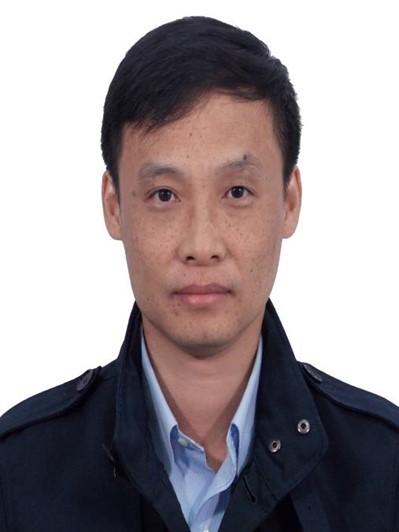 Cai-Guang Yang (杨财广)
Cai-Guang Yang (杨财广)
Professor
Shanghai Institute of Materia Medica
Chinese Academy of Sciences
Shanghai
China
Cai-Guang Yang is a full professor at Shanghai Institute of Materia Medica and a joint faculty at Hangzhou Institute for Advanced Study, University of Chinese Academy of Sciences. He received a BS degree from Huazhong University of Science and Technology in 1997 and a Ph.D. at Shanghai Institute of Organic Chemistry with Prof. Biao Jiang in 2002. After postdoctoral training with Prof. Philip Eaton and Prof. Chuan He at the University of Chicago, he started his independent career at Shanghai Institute of Materia Medica in 2008. His current research focuses on the development of small molecules to target untargeted proteins for the treatment of cancer and drug-resistant bacteria.
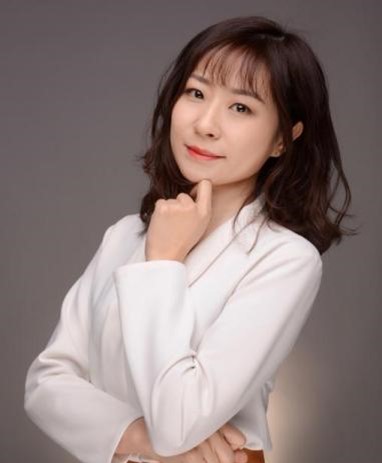 Ji Li (李吉), M.D., Ph.D.
Ji Li (李吉), M.D., Ph.D.
Chief physician, professor
Deputy Director of Department of Dermatology, Xiangya Hospital, Central South University
Director of Hunan Key Laboratory of Aging Biology
Winner of National Natural Science Funds for Distinguished Young Scholars, Young Scholars of the Ministry of Education
Ji Li currently serves as the leader of the Rosacea Group of Dermatologists Branch of Chinese Medical Doctor Association, the member of the Hair Group of Dermatological Society of Chinese Medical Association, the standing member of the Dermatology Expert Committee of Chinese Female Medical Doctor Association, and the vice president of the Dermatologist Branch of Hunan Medical Doctor Association.
In recent years, she has been engaged in the clinical and scientific research work of disfiguring dermatosis (rosacea, alopecia and skin aging). She has presided over one key research and development project of the Ministry of Science and Technology, six projects of the National Natural Science Foundation of China and a number of provincial scientific research projects. As the first author/corresponding author, she has published more than 80 SCI papers in the authoritative international journals such as BMJ, Sci Adv, Dev Cell, EMBO J, JAAD, JAMA Dermtol, JID and other journals. She won the first prize of Scientific and Technological Progress of Hunan Province (ranked second), the first prize of Huaxia Medical Science and Technology Award (ranked second) and the "Wuzhou Women's Science and Technology Award" in 2021.
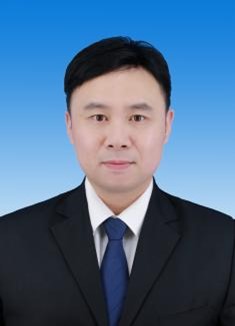 Jian Xiao (肖健)
Jian Xiao (肖健)
Professor
Associate Dean of School of Pharmacy
Department of Pharmacology School of Pharmaceutical Sciences
Wenzhou Medical University
Wenzhou
China
Dr. Jian Xiao has committed himself to scientific research and applied Research for 20 years in wound repair. Based on the background of skin wound healing and nerve injury repair by growth factors, he launched a series of research and published 100 papers. He also got 41 patents, 1 new drug license and 3 medical device licenses. His study discovered that the mechanisms of fibroblast growth factor (FGF) in skin wound healing are acceleration of wound closure, inhibition of scar formation, decrease pigmentation, and promotion of hair growth. His studies also proved that FGFs exert bioactivity including neuronal protection, axon regeneration, and inhibition of glial scarring, which contribute to the functional recovery of spinal cord injury (SCI). He also developed several biomaterials which can improve the release and efficacy of FGFs to treat skin wounds and SCI, proposed a new theory for designing the biomaterials to encapsulate growth factors. In particular, he won the first-class National Award of Science and Technology (2015), the second-class National Award of Science and Technology (2018), the second class Chinese Medical Award of the Science and Technology (2020) and the Wang Zhengguo Trauma Medicine Innovation Award (2019).
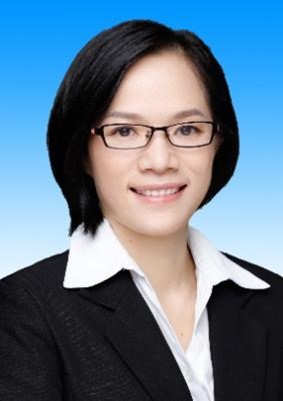 Huichang Bi (毕惠嫦)
Huichang Bi (毕惠嫦)
Professor and Dean
the School of Pharmaceutical Science
Southern Medical University
China
Dr. Huichang Bi is a Professor and Dean at the School of Pharmaceutical Sciences, Southern Medical University. Dr. Bi has a continuous interest in disclosing the metabolism of xenobiotics and endobiotics and their effects on diseases. Dr. Bi's research interest also extends to the drug-disease interactions mediated by nuclear receptors. She has been attracted almost 20 grants as PI. So far, she has authored more than 130 papers on peer-reviewed national and international journals. She has edited 5 books and authored 7 book chapters. Dr. Bi has been invited to serve as a board member of various pharmaceutical societies, editorial board of scientific journals, and reviewer for many international journals. Currently, she is the vice-president of CSSX. She received the CNPHARS-Sevier Young Investigator Awards in Pharmacology in 2014, the National Natural Science Fund of China for Excellent Young Scholars Award in 2015, the ISSX Asia Pacific New Investigator Award in 2018 and the National Natural Science Fund of China for Distinguished Young Scholars Award in 2020. Most recently, she obtained the Richard Okita Early Career Award in Drug Metabolism and Disposition in 2021.
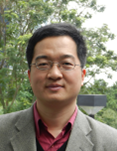 Jianhua Ju (鞠建华)
Jianhua Ju (鞠建华)
Professor
Dean
School of Pharmaceutical Sciences
Shandong University
China
Jianhua Ju received his Ph.D. from Peking Union Medical College in 2000. He worked in the area of natural products discovery as an assistant then associate researcher at the Chinese Academy of Medical Sciences from 2000 to 2003. He subsequently worked as a research associate in Professor Ben Shen's lab from 2003 to 2008 at the University of Wisconsin–Madison, USA. From 2008-2021, he worked in the South China Sea Institute of Oceanology, Chinese Academy of Sciences as a full professor. Since 2022, he joined School of Pharmaceutical Sciences, Shandong University as dean and professor. His main research interests focus on bioactive natural products discovery, biosynthesis and anti-infective/anticancer drug development. He has been the recipient of numerous honors and awards including Servier Young Investigator Award in Medicinal Chemistry (2002), Wuxi AppTech Life and Chemistry Award (2013), 1st Award of Guangdong Science and Technology for Natural Resource (2021), the National Science Fund for Distinguished Young Scholars (2014), and has authored 210+ scientific publications including Nat. Chem. Biol., Nature Commun., PNAS, JACS, ACIE et al., four monographs and 30 licensed patents.
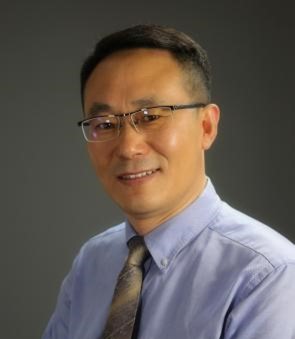 Qiang Sun (孙强)
Qiang Sun (孙强)
Professor, and director
the Non-Human Primate (NHP) Research Facility
Center for Excellence in Brain Science and Intelligence Technology Chinese Academy of Science
China
Qiang Sun, Professor, and director of the Non-Human Primate (NHP) Research Facility at Center for Excellence in Brain Science and Intelligence Technology (CEBSIT), Chinese Academy of Science (CAS). He dedicated himself to the development of assisted reproduction technology, transgenic and stem cell technology, and cloning techniques to facilitate the generation of NHP transgenic models based on macaques, as well as cloning macaques. He has established transgenic technology for nonhuman primates by lentivirus transfection and obtained autism-like cynomolgus monkey models (Nature 2016). He has also established gene-editing technology for non-human primates using CRISPR-Cas and obtained gene knock-out and knock-in monkey models (Natl. Sci. Rev., 2019a, Mol. Ther., 2022). He has also obtained offspring by using somatic cell nuclear transfer technology for the first time in the world (Cell 2018, Natl. Sci. Rev., 2019b).
Hou-Zao Chen (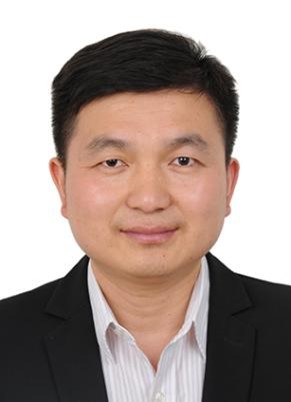 )
)
Professor
National Laboratory of Medical Molecular Biology
Institute of Basic Medical Sciences
Chinese Academy of Medical Sciences
Peking Union Medical College
Beijing
China
Dr. Hou-Zao Chen is currently a professor of National Laboratory of Medical Molecular Biology, Institute of Basic Medical Sciences, Chinese Academy of Medical Sciences (CAMS) & Peking Union Medical College (PUMC). Dr. Chen’s research expertise is molecular mechanisms of age-related cardiovascular diseases, particularly the role of epigenetic regulation in the development and progression of atherosclerosis, diabetic vascular disease, aortic aneurysm and cardiac hypertrophy. He has published more than 60 original research articles and invited reviews including Nature Cell Biology, J Clin Invest, J Exp Med, Nat Commun, Euro Heart J, Circ, Circ Res, Aging Cell, Cell Syst, which have been cited more than 4500 times. Throughout his academic career, Dr. Chen has received numerous awards including National Funds for Distinguished Young Scientists in China. He has served as Editorial Board Members for Free Radical Biology and Medicine and Cardiovascular Drugs and Therapy.
 Yu Sun (孙宇)
Yu Sun (孙宇)
Professor
Shanghai Institute of Nutrition and Health
Chinese Academy of Sciences
Shanghai
China
Dr. Yu Sun is a scientific researcher in the field of cancer and aging biology, with a focus on the molecular mechanism of cellular senescence, its pathological implications in organ degeneration and aging-related diseases. He discovered a number of key factors synthesized and released by human senescent cells and established the impact of senescent cells on tissue homeostasis and organ function, particularly via the senescence-associated secretory phenotype (SASP). His group is actively dedicated to the characterization of senescence-associated chromosome architecture and exploration of novel agents to precisely intervene human aging.
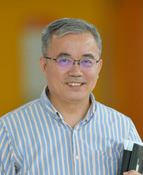 Zhen-Ge Luo (罗振革)
Zhen-Ge Luo (罗振革)
Professor, Executive Dean
School of Life Science and Technology, ShanghaiTech University
Shanghai
China
Dr. Luo graduated from Nankai University in Tianjin, China in 1988. He obtained Ph. D from Chinese Academy of Military Medical Sciences and accepted postdoctoral training in the Department of Neurobiology, University of Alabama at Birmingham (UAB), the United States of America. In 2003, he joined the Institute of Neuroscience (ION), Shanghai Institutes for Biological Sciences (SIBS), Chinese Academy of Sciences (CAS), as a Principal Investigator. In 2018, he joined the School of Life Science and Technology, ShanghaiTech University, as a tenured full professor. His research concentrates on neural development, degeneration, and regeneration, including cortex development and evolution, neuronal growth, and repair, and aging related neuronal disorders. Currently, Dr. Luo serves as a vice president for the Chinese Society for Cell Biology, an executive council member of the Chinese Neuroscience Society chairing the Neurodevelopment and Regeneration Branch.
 Yangyu Zhao ( 赵扬玉)
Yangyu Zhao ( 赵扬玉)
Professor
Director
the department of Obstetrics and Gynecology
Peking University Third Hospital.
Beijing
Chi na
Prof Zhao is the director of the department of Obstetrics and Gynecology, Peking University Third Hospital. Her research focuses on Maternal-Fetal Medicine, and Perinatal medicine (complicated and high-risk pregnancy, complicated obstetric operation, multiple pregnancy). She is the expert of the national prenatal diagnosis technical expert group, member of the national medical service standard professional committee and member of the national maternal and child health standard professional committee. She also serves as vice chairman of the birth defects professional committee of the Chinese preventive medical association, chairman of the high-risk pregnancy management committee of China maternal and child health care association, vice chairman of the obstetrics and gynecology committee of China medical women's association etc. She has published more than 50 academic papers, obtained 5 Invention Patents, and won the first prize of National Maternal and Child Health Science and Technology Award. In addition, as the principal investigator, Prof Zhao presided over several scientific research projects, including National Key Research and Development Project, National Natural Science Foundation of China, National Key Technology Support Program, Beijing Natural Science Foundation, The capital key health research and development of special, etc.
 Yang Yu, MD, PhD
Yang Yu, MD, PhD
Professor
Director of the Clinical Stem Cell Research Center
Third Hospital
Peking University
Beijing
China
Dr. Yang Yu, Principal Investigator, doctoral supervisor. He is currently the director of the Clinical Stem Cell Research Center of Peking University Third Hospital and the deputy Director of the Beijing Key Laboratory of Reproductive Endocrinology and Assisted Reproduction Technology. Prof. Yu has undertaken 10 national projects such as the National Natural Science Found Distinguished Young Scholars, National Key Research and Development Program of China, National Natural Science Foundation of China. His research fields include the molecular mechanism of female "hypothalamic-ovarian axis" involved in reproductive aging and fertility decline, and the development of new methods and strategies for preventing and improving fertility in elderly women, mainly stem cells and traditional Chinese medicine monomer molecules. He has published 73 SCI papers as the first or corresponding author, including Cell, Nat Commun, Hum Reprod Update, etc., and 6 authorized patents including international PCT patents. Prof. Yu was awarded several prizes, including: 1) Second Class Prizes of Ther State Scientific and Technological Progress Award; 2) Beijing Science and Technology Progress Award First Prize; 3) Chinese medical science and technology prize, First Prize and was selected as Beijing Outstanding Young Talents and Beijing Science and Technology Rising Star Training Program.
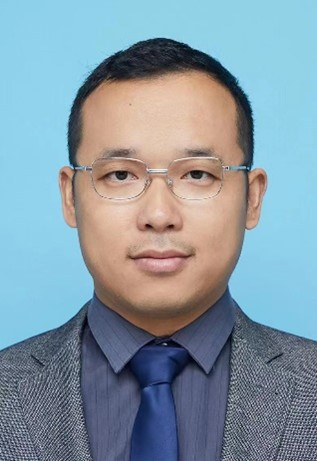 Hu Ji (胡霁), PhD
Hu Ji (胡霁), PhD
Professor
Assistant Dean of School of Life science and Technology
ShanghaiTech University
Shanghai
China
Prof Hu Ji is a Changjiang Scholar Distinguished Professor at ShanghaiTech University, he also serves as the Assistant Dean of School of Life science and Technology. Currently, he holds positions as the Deputy Chair of the Stress Neurobiology Subdivision of the Chinese Society for Neuroscience, the Deputy Chair of the Cognitive Neurobiology Subdivision of the Chinese Society for Neuroscience, and a committee member of the Anesthesia and Brain Function Subdivision of the Chinese Society for Neuroscience. He has been awarded the National Young Thousand Talents Program, National Natural Science Foundation of China General Project, National Natural Science Foundation of China Outstanding Young Scholars Project, National Natural Science Foundation of China Major Research Plan, National Natural Science Foundation of China Major Project, and support from the Ministry of Science and Technology 973 Program. His research findings have been published in Nature, Neuron, Current Biology, Science Advances etc. He has received the Chongqing Science and Technology Progress First Prize, the Chinese Academy of Sciences Second Prize for Teaching Achievements, and the Shanghai Municipal Special Prize for Teaching Achievements."
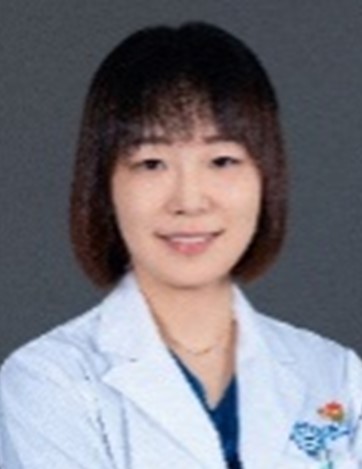 Weina Jin (金薇娜), MD, PhD
Weina Jin (金薇娜), MD, PhD
Professor
Beijing Tiantan Hospital
Capital Medical University
Beijing
China
Prof Weina Jin obtained her Bachelor degree from Xiangya Medical College, Central South University, and Ph.D. in Pathophysiology from Peking Union Medical College. She completed her postdoctoral research at the Barrow Neurological Institute in the United States and currently serves as a PI in neurology, and recipient of the National Outstanding Young Scientist Foundation. She is currently employed at Beijing Tiantan Hospital, the National Clinical Research Center for Neurological Diseases, and the Director of Beijing Key Laboratory of Translational Medicine in Cerebrovascular Diseases. She is a committee member of the Neuroimmunology Subdivision of the Chinese Medical Association, an executive member of the Youth Council of the Chinese Stroke Association, a member of the Translational Medicine Subdivision of the Chinese Stroke Association, and a council member of the Tianjin Stroke Association. Her research focuses on the specific neuroimmune responses in the nervous system, the molecular mechanisms of immune regulation in age-related neurological diseases, and the development of serological markers for auxiliary diagnosis and treatment prediction in neurological diseases using patient samples and corresponding animal models. She has led four National Natural Science Foundation projects and has published 51 SCI articles, with representative work in journals such as Immunity, Nat Neuroscience, and Stroke.
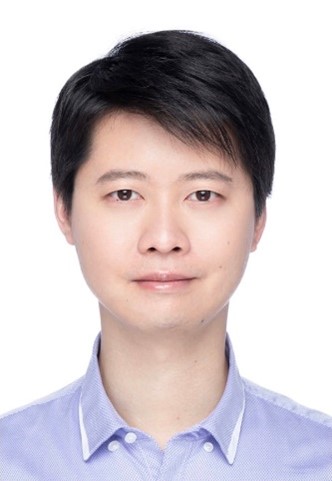 Bo Peng (彭勃), PhD
Bo Peng (彭勃), PhD
Professor
Assistant director at Institute for Translational Brain Research
Fudan University
Shanghai
China
Dr. Bo Peng is a professor and assistant director at Institute for Translational Brain Research, Fudan University. He obtained his bachelor degree of biotechnology in 2008 at Huazhong University of Science and Technology. He then studied neurophysiology at Institute of Neuroscience at Chinese Academy of Sciences from 2008 to 2011. After that, he investigated retinal degenerative disorders at The University of Hong Kong and obtained his Ph.D. degree in neuroscience at 2015. After that, Dr. Bo Peng joined Shenzhen Institutes of Advanced Technology at Chinese Academy of Sciences as an associate professor and established his own lab. In 2019, Dr. Bo Peng moved to Fudan University.
Dr. Bo Peng's laboratory is mainly focusing on understanding how microglia turnover in physiological and pathological conditions. In addition, his lab is developing therapeutic approaches for treating CNS disorders. Dr. Bo Peng published a series of corresponding author papers, including in Nature Neuroscience, Nature Aging, Neuron, Cell Reports, Nature Communications and eLife.
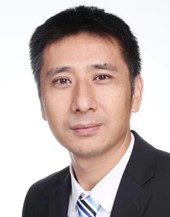 Gang Cao (曹罡), PhD
Gang Cao (曹罡), PhD
Professor
Shenzhen University of Technology
Shenzhen
China
Professor Gang Cao got his PhD in Radboud University Nijmegen, The Netherlands, 2008 and then joined Sanford-Burnham Institute for Medical Research and Cold Spring Harbor Laboratory for his Postdoc training. In the end of 2012, Prof. Cao started his own lab in Huazhong agricultural university, Wuhan and now is a professor in Shenzhen Institute of advanced technology, Chinese Academy of Sciences. His group focuses on the development of state-of-art single cell multi-omics technologies, including (single-cell) spatial omics, (single-cell) three-dimensional genomics and (single-cell) connectomics and their application in "Neuro-immune" system biology and diagnosis. Particularly, optimization and application of the above-mentioned technologies to: 1) delineate the genetic, epigenetic landscape and physiologic function of neural circuits at single neuron level for depression, especially for pain induced depression; 2) dissect the neural circuits regulating immune response to understand autoimmune diseases and immunoregulation against infection from neuroscience perspective. During last 5 years, his group published 24 papers in high-ranking journals including Nature Genetics, Neuron, Science Advance , Molecular Neurodegeneration, Nature Communications.
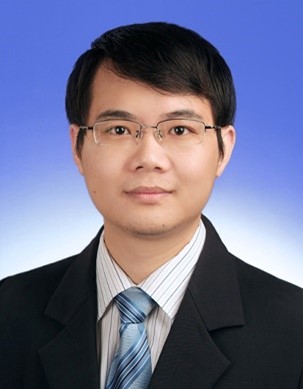 Yaohui Tang (汤耀辉), PhD
Yaohui Tang (汤耀辉), PhD
Associate Professor
Department of Biomedical Engineering
Shanghai Jiao Tong University
Shanghai
China
Dr. Yaohui Tang is a tenure-track associate professor at the department of Biomedical Engineering, Shanghai Jiao Tong University. He is the project leader of National Key R&D Young Scientist Program and "Rising-Star Program" of Shanghai. In 2019 Dr. Tang has been rewarded as an Outstanding Science and Technology Worker of Chinese Stroke Society. Dr. Tang’s lab mainly focuses on investigating the mechanism and developing stem cell, exosome and biomaterial-based therapy of cerebrovascular disease. Currently he hosts several grants from The National Key R&D program of China, National Natural Science Foundation of China, Shanghai Science and Technology Commission etc. His work has been published on Nature Communications, Advanced Science, Stroke, JCBFM, Stem cell reports etc, with more than 3000 citations and H-index as 29. He has also served as an assistant editor in Stroke and vascular neurology (SVN) as well as the committee members of Cerebral Blood Flow and Metabolism Branch of Chinese Stroke Association and Shanghai Branch of Vascular Aging and Cardiovascular and Cerebrovascular Diseases.
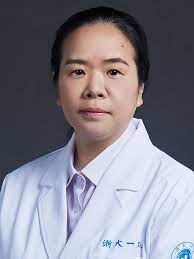 Hongcui Cao (曹红翠), MD, PhD
Hongcui Cao (曹红翠), MD, PhD
Professor
Deputy director of the State Key Laboratory of Diagnosis and Treatment of Infectious Diseases Zhejiang University,
Zhejiang
China
Prof. Hongcui Cai is focused on the research of mesenchymal stem cells (MSCs) and organ repair, such as liver, lung, and intestinal. She has been conducting placental-derived MSCs for the treatment of acute liver failure in Chinese miniature pigs earlier in the world. She and her group has also revealed the pathogenesis of liver failure and the mechanism of stem cell transplantation for liver disease such as liver failure, hepatic fibrosis, and acute liver injury using proteomics and metabolomics. She has published more than 130 articles, owned 10 invention patents and owned more than 8 state projects including Chinese High-Tech Research & Development (863) Program and National Natural Science Foundation of China. She is a Member of National Expert Committee on Liver Failure and Artificial Liver, Member of Asian Pacific Association for the Study of the Liver (APASL), also the Editorial Board Member of《Journal of Internal Medicine》and 《World Journal of Stem Cells》, Associate Editor of 《Frontiers in Public Health》(Surveillance, Prevention and Treatment section). Now she is Professor of Zhejiang University School of Medicine, vice dean of State Key Laboratory for Diagnosis and Treatment of Infectious Diseases, vice dean of Zhejiang Provincial Key Laboratory for Diagnosis and Treatment of Aging and Physic-chemical Injury Diseases.
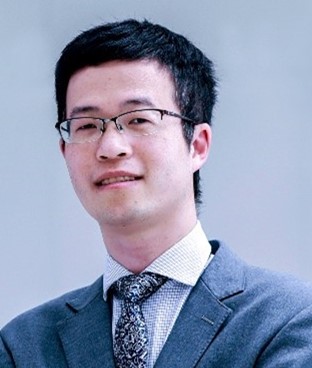 Junjie XIAO
Junjie XIAO
Professor
Executive Dean of School of Life Science
Shanghai University
Shanghai
China
Junjie XIAO is currently a Professor at Shanghai University. He is the Executive Dean of the School of Life Science at Shanghai University. He is also the Associate Editor of Journal of Cardiovascular Translational Research, Editorial Board of Journal of Sport and Health Science, Social Media Editor of Journal of Molecular and Cellular Cardiology, etc. He is the author or co-author of many scientific articles, including Circulation, Circulation Research, Cell Metabolism, Nature Communications, Annual Review of Genomics and Human Genetics, and BMC Medicine. He has been the reviewer of Physiological Reviews, Circulation Research, Cell Reports Medicine, Hypertension, Journal of the American College of Cardiology, Molecular Therapy, etc. He obtained 2018 and 2019 Peer Review Awards (Top 1% in Field, Publons). His major research interest is heart failure and exercise training, especially using exercise as a platform to identify novel targets for enhancing cardiac regeneration and combating cardiovascular diseases.
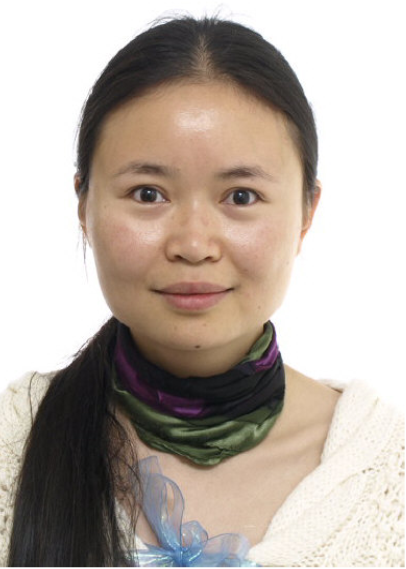 Jing YE (M.D.; PhD)
Jing YE (M.D.; PhD)
Professor of Shanghai Jiaotong University, School of Medicine
Vice Director of Aging Medical Center, Shanghai Ruijin hospital affiliated to Shanghai Jiaotong University, School of Medicine
- Co-head (with Pr Y. Lu and Pr E Gilson) of the team ‘Telomere and Aging Related Disease’ within the CNRS-INSERM-UNS-Jiaotong University LIA (International associated laboratory) “Cancer Aging and Hematology” at Ruijing Hospital, affiliated to Shanghai Jiaotong University, School of Medicine
As a clinical doctor and research scientist, Jing Ye is mainly interested in understanding the mechanism of telomere dysfunction induced aging and aging related clinical pathologies. During her early carrier as a researcher, Dr Jing Ye identified a crucial role of the shelterin protein TRF2 during telomere replication. This was followed by unexpected results pointing to “non canonical” roles of the same protein in neuronal gene expression and function. These seminal discoveries contributed to the concept of tissue-specific signaling of telomere dysfunction. Her current work is devoted to understanding how these pathways shape systemic aging. As a clinical doctor, Dr Jing Ye makes a substantial effort to translate her results in clinic, particularly by the development of innovative telomere assays to screen compounds preventing the installation of neurodegenerative and metabolic disorders in the aging population. Until now, Dr. Jing Ye has published more than 50 papers in peer reviewed journals, including Cell, Mol Cell, Nat Struct Mol Biol, Aging Cell, Nucleic Acid Res, etc.
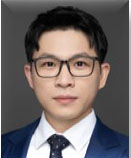 Liangshan Mu (木良善), MD, PhD
Liangshan Mu (木良善), MD, PhD
Attending Doctor
Zhongshan Hospital
Fudan University
Shanghai
China
Dr. Liangshan Mu is an attending doctor at the Reproductive Medicine Center of Zhongshan Hospital, Fudan University. He holds Ph.D. from Peking University, under the mentorship of Prof Jie Qiao. He has been awarded the Zhang Lizhu Young Innovation Award in Reproductive Medicine and Clinical Medicine Award. Dr. Mu has led various research projects, including the National Natural Science Foundation and Special Support for Postdoctoral Scientists in China. As the first/corresponding author, he has published over 10 SCI papers in journals such as Trends in Genetics, AJOG, EBioMedicine, and JCEM. He has contributed to the compilation of three Chinese expert consensus documents, serves as a reviewer for journals like Nature Medicine, and is a young editorial board member for Aging and Disease. His research focuses on metabolic abnormalities and reproductive disorders.
 Tina Woods
Tina Woods
Director
All-Party Parliamentary Group for Longevity
Co-Founder and CEO of Business for Health
Tina Woods is a mission-driven social entrepreneur and system architect bringing diverse stakeholders together in shared endeavours to improve and level up health, working at the cross section of science, technology, investment and policy/government. She is Founder and CEO of Collider Health and works with private, public and third sectors, including UK Research and Innovation (UKRI)’s Healthy Ageing Industrial Strategy, NHS AI Lab, and emerging Integrated Care Systems.
She is the Healthy Longevity Champion for the National Innovation Centre for Ageing, aiming to accelerate ageing intelligence and secure UK Research & Innovation's strategic aims to ensure better health, ageing and wellbeing in the UK and globally. She is co-leading the Quantum Healthy Longevity Innovation Mission with the National Innovation Centre for Ageing to create the world’s first test bed for health underpinned by growing understanding of the exposome and links between health and climate.
Tina was director of the All Party Parliamentary Group for Longevity secretariat until it disbanded in January 2023, and led the Open Life Data Framework. She is Co-Founder and CEO of Business for Health, a business-led social venture developing a Business Framework for Health, bringing in ‘Health’ into ‘ESG’ mandates to support long-term sustainable innovation and investment in preventative health and care. Tina’s book, ‘Live Longer with AI: How artificial intelligence is helping us extend our healthspans and live better too' was published in October 2020.
 Tzipi Strauss, MD
Tzipi Strauss, MD
Professor
the Director of Neonatology at Sheba Medical Center
Tel Aviv University
Israel
Prof. Strauss is Head of the Department of Neonatology at the Sheba Medical Center and Professor at the School of Medicine. She obtained her M.D. from the Rappaport Faculty of Medicine at the Technion Institute of Technology and an MPH from the School of Public Health at Harvard. She performed her residency in Pediatrics at the Sheba Medical Center. During her residency she performed research at the Leiden University Medical Center in Holland. Formerly she served as Deputy Director of the Edmond and Lily Safra Children’s Hospital. She has recently established the first academic and clinical research center for Longevity in Israel.
Prof. Strauss’ main research topics are hemostasis and prematurity. She has studied how breast milk feeding (BMF) practices among very preterm infants influence their growth, as well as the recent consequences of vaccination during pregnancy on maternal-neonatal transfer of SARS-CoV-2 antibodies. Her focus is that the children of today are the adults of tomorrow, so that the quality and care will affect us throughout adulthood and the aging process. She has published more than 50 original articles in international journals.
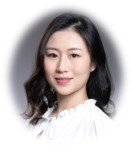 Yuan HUANG
Yuan HUANG
Technology Transfer Director of Hong Kong Quantum AI Lab
Managing Director of HK Longevity Medical Center
Venture Partner of LongeVC
Fellow of the Royal Society of Medicine (UK)
Fellow of Guangzhou Youth Federation
Dr. Christine Huang Yuan is the Technology Transfer Director of Hong Kong Quantum AI Lab, Founder and Managing Director of HK Longevity Medical Center. She is also a Senior Research Associate at the University of Hong Kong. Christine was selected as one of Forbes China 2020 “30 Under 30 (Healthcare and Science)” for developing cancer liquid biopsy technology, and a Fellow of the Royal Society of Medicine (UK). Christine was elected as a Fellow of Guangzhou Youth Federation in Nov 2022.
Christine graduated from Southern Medical University with Doctor of Medicine and obtained a master’s degree from the Li Ka Shing Faculty of Medicine of the University of Hong Kong and later on trained in the neurology department of Queen Mary Hospital in Hong Kong, where she participated in several large-scale international clinical trials. Dr. Huang is skilled in translational medicine, especially in the fields of AI-driven medicine, age-associated diseases (neurodegenerative diseases, cancer, diabetes, etc.) and longevity medicine.
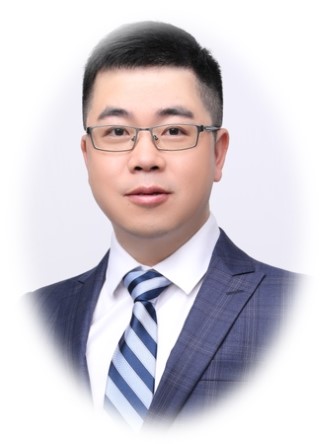 Jianjing Yang, M.D., Ph.D.
Jianjing Yang, M.D., Ph.D.
Associate Professor
The Department of Neurosurgery, The First Affiliated Hospital of Wenzhou Medical University
Wenzhou
China
Dr. Jianjing Yang is an associate professor at Wenzhou Medical University. He began his academic research at the molecular biology department of UT Southwestern Medical Center as a visiting scholar. Currently, he also is a neurosurgeon of The First Affiliated Hospital of Wenzhou Medical University. He is on the Youth Committee of the Neurosurgery Branch of Zhejiang Medical Association and Young Member of the Neurosurgery Professional Committee of Zhejiang. As a clinical doctor and research scientist, Jianjing Yang is mainly engaged in glioma and brain injury research. More specifically, studying the potential application of neuronal reprogramming in glioma treatment and exploring new glioma therapeutic targets. As the first/corresponding author, he has published over 10 SCI papers in authoritative international journals such as PNAS and Theranotics. He led various research projects, including National Natural Science Foundation of China and Zhejiang Provincial Natural Science Foundation of China.
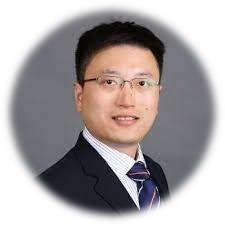 Michael Chunming WANG
Michael Chunming WANG
Professor
Director, Smart Hospital Development Department, Renji Hospital,
Shanghai Jiaotong University School of Medicine
China
Chunming WANG, Doctor of Public Health (University of New South Wales, Australia), Master of Health and Health Care Management (University of Birmingham, UK), Bachelor of Medicine (Shanghai Jiaotong University School of Medicine) is from Shanghai RenJi Hospital affiliated to Shanghai Jiao Tong University, School of Medicine, which is General Tertiary Hospital with 178 years history and it has 2000 beds.
Dr. Wang has held and led in multiple positions, spanning over medical service management, research and teaching management of large-scale comprehensive public hospital, with focus on research on applicable innovations in management of large scale multi-district hospital, multi- and interdisciplinary collaborations, international medical service, intelligent healthcare, digitalization and most importantly, establishment and operability of a leading internet hospital.
He leads a project under the National Natural Science Foundation of China, 5 municipal scientific research projects (Shanghai Health Commission, Shanghai Shenkang Hospital Development Center etc.) , published more than 30 papers at home and abroad, and won 3 software copyrights.




